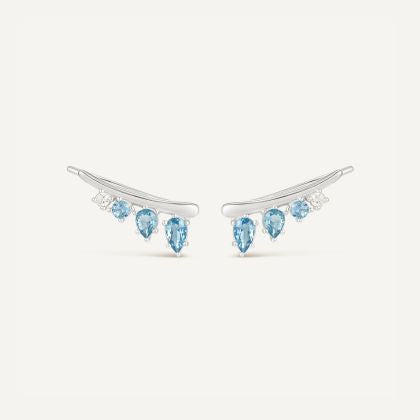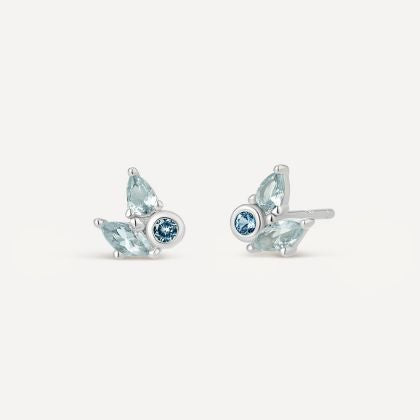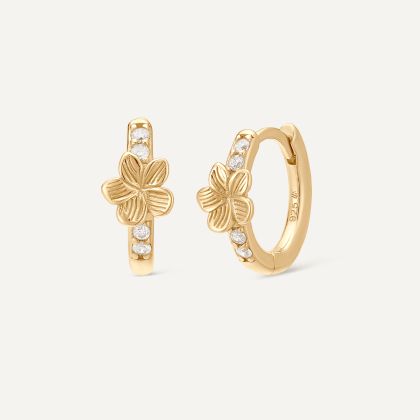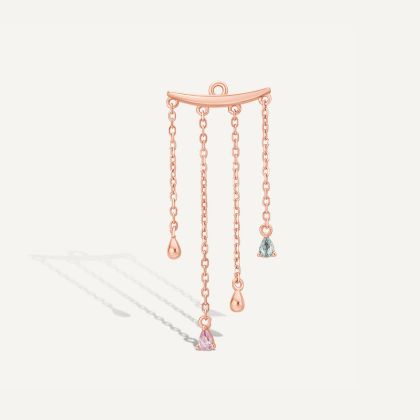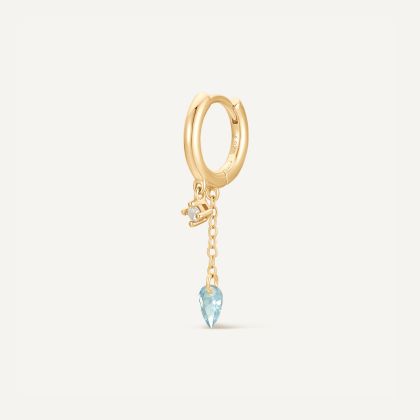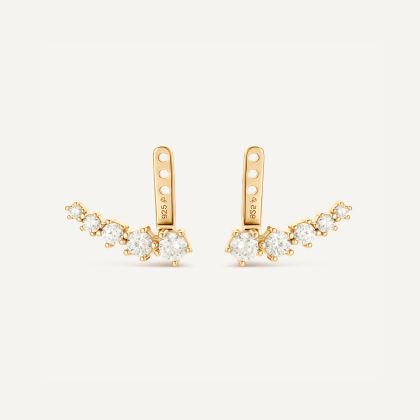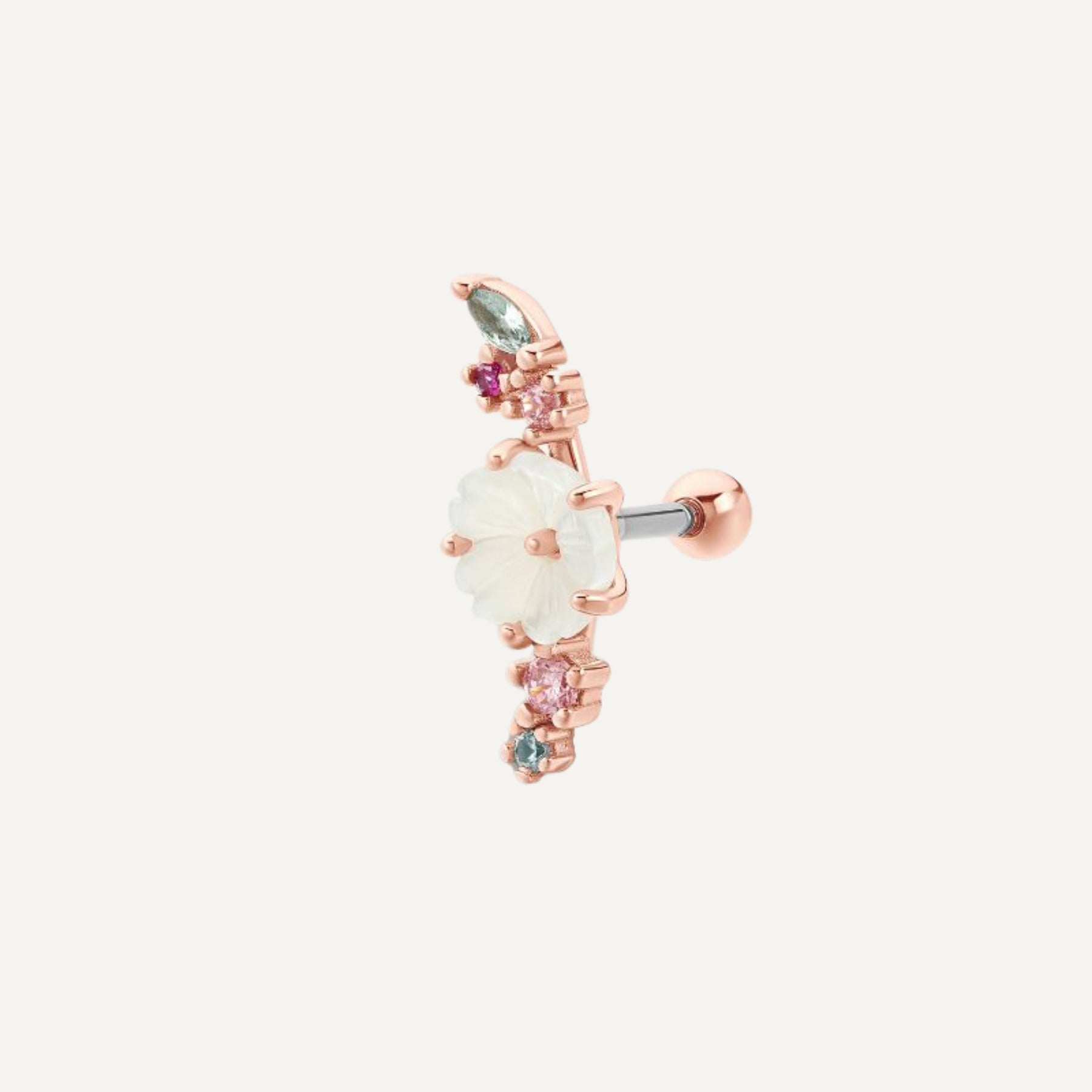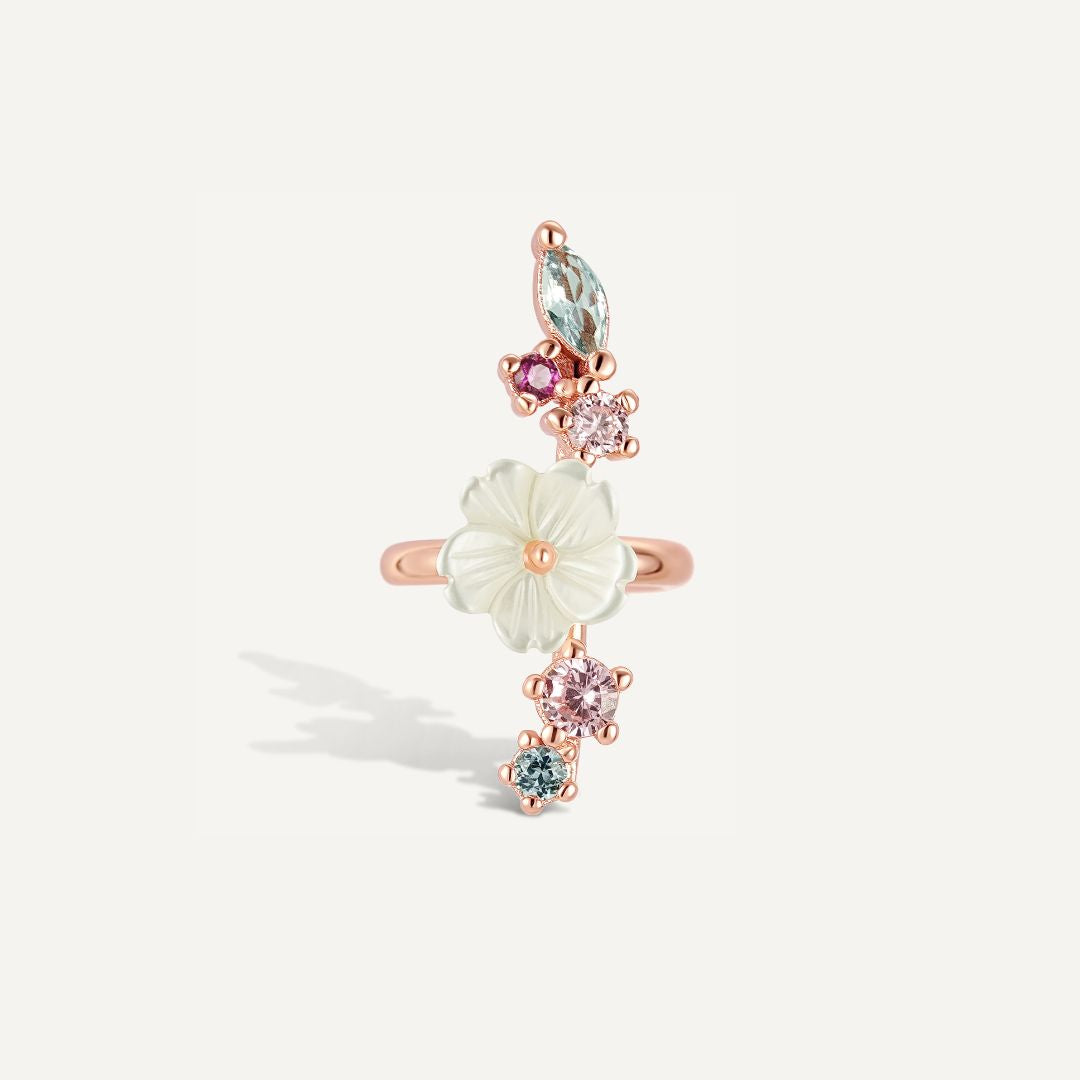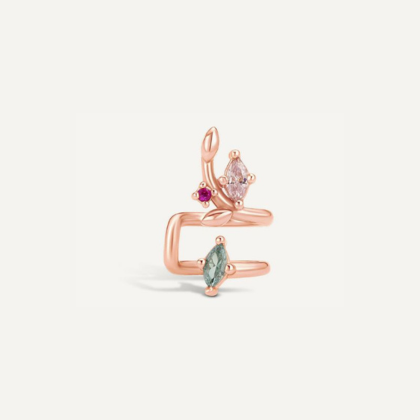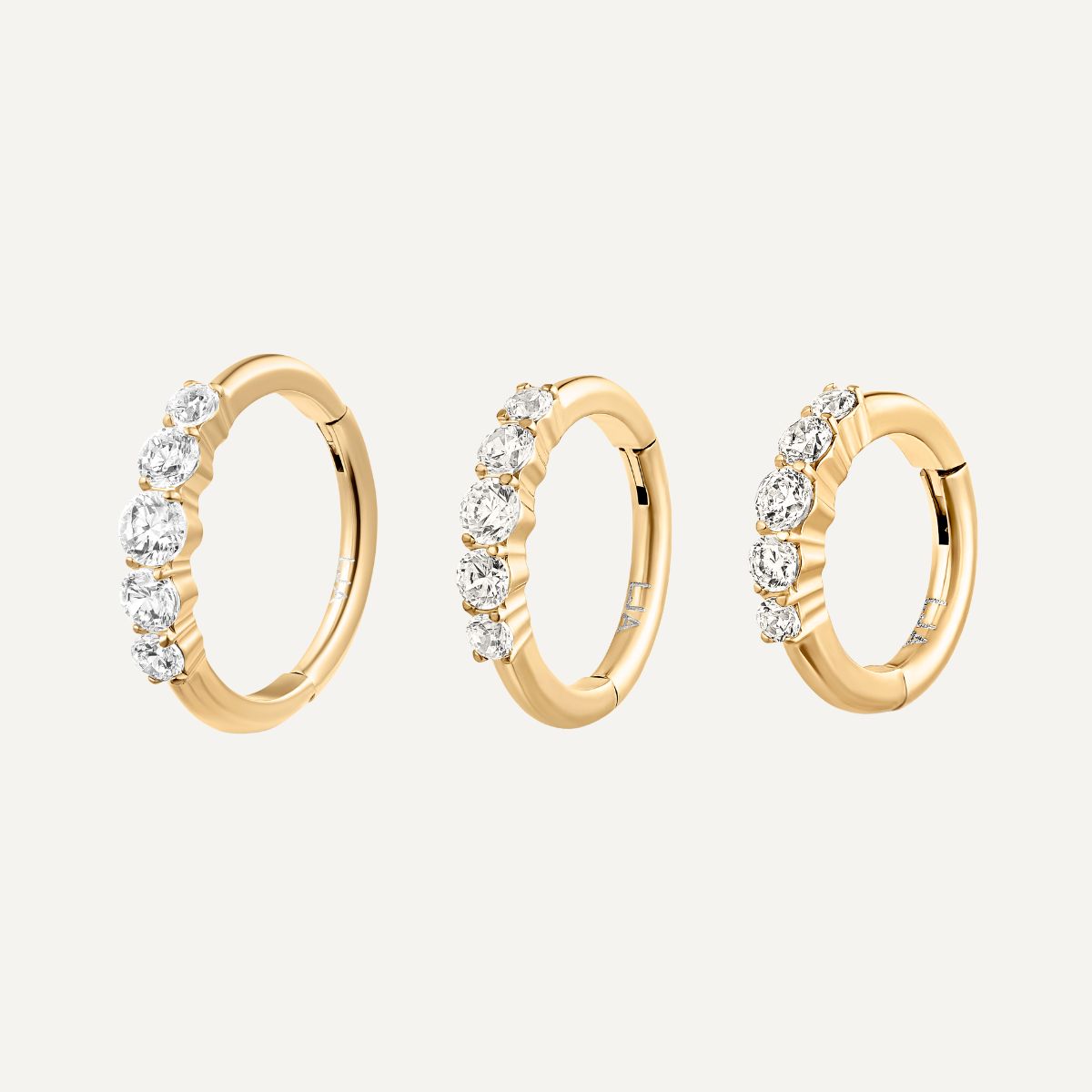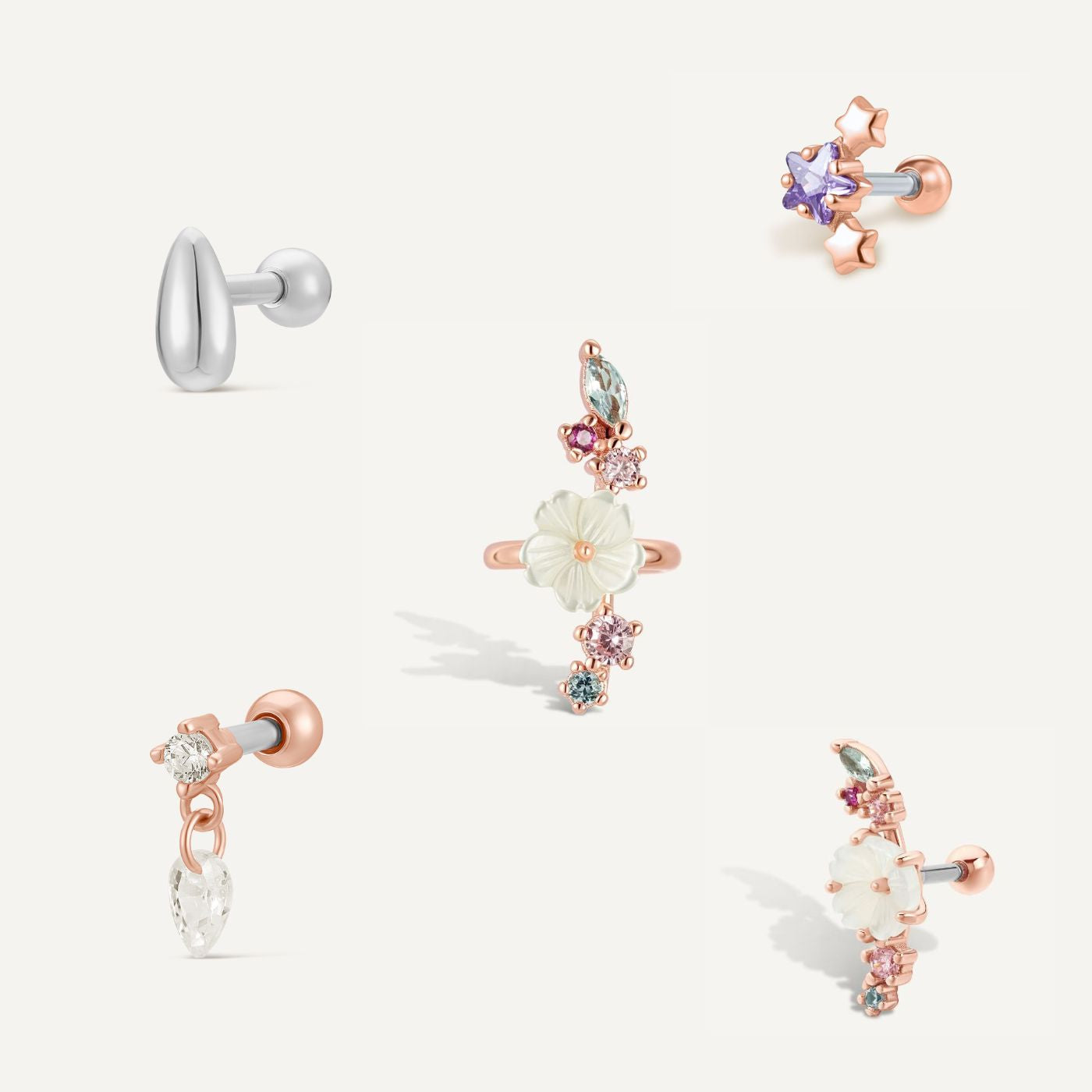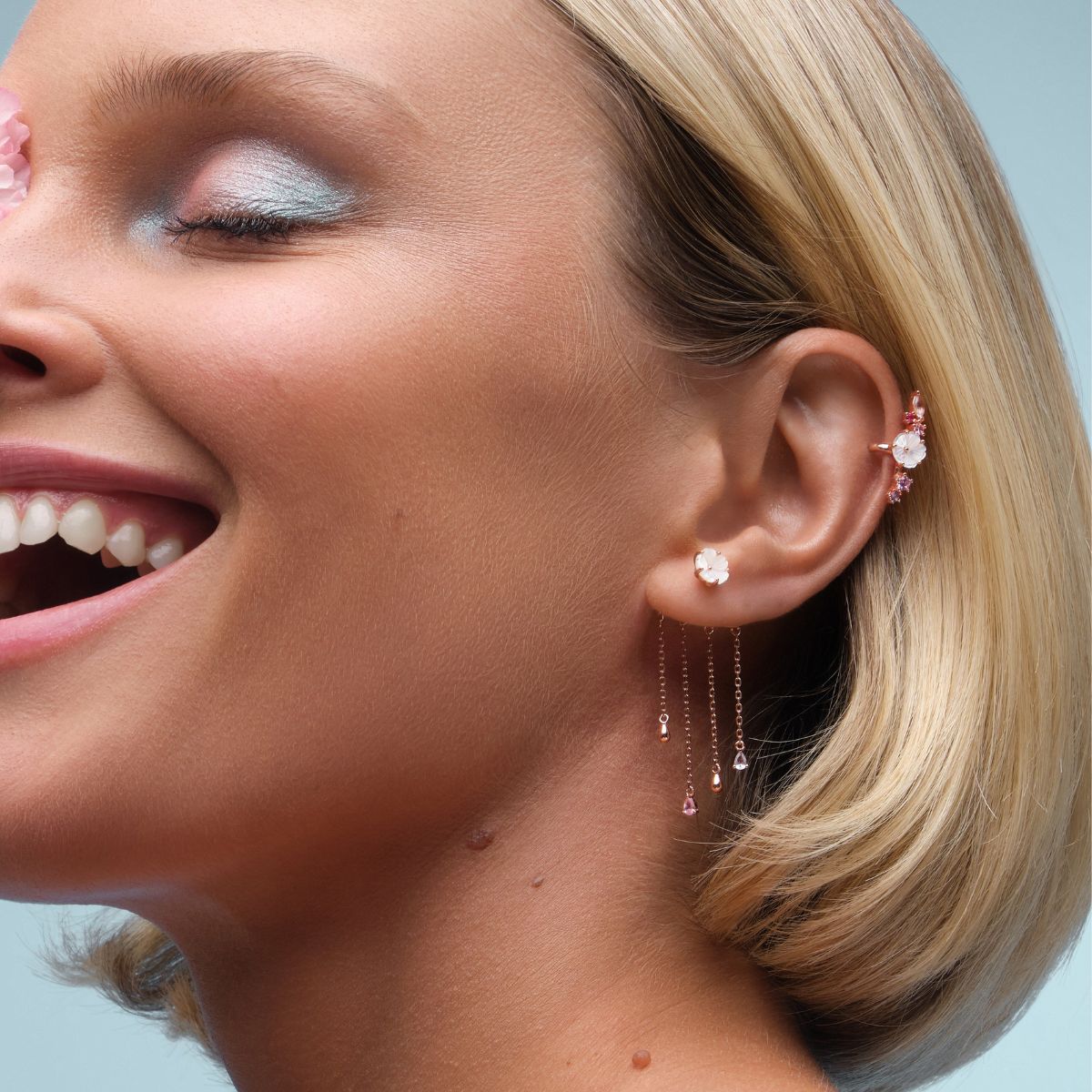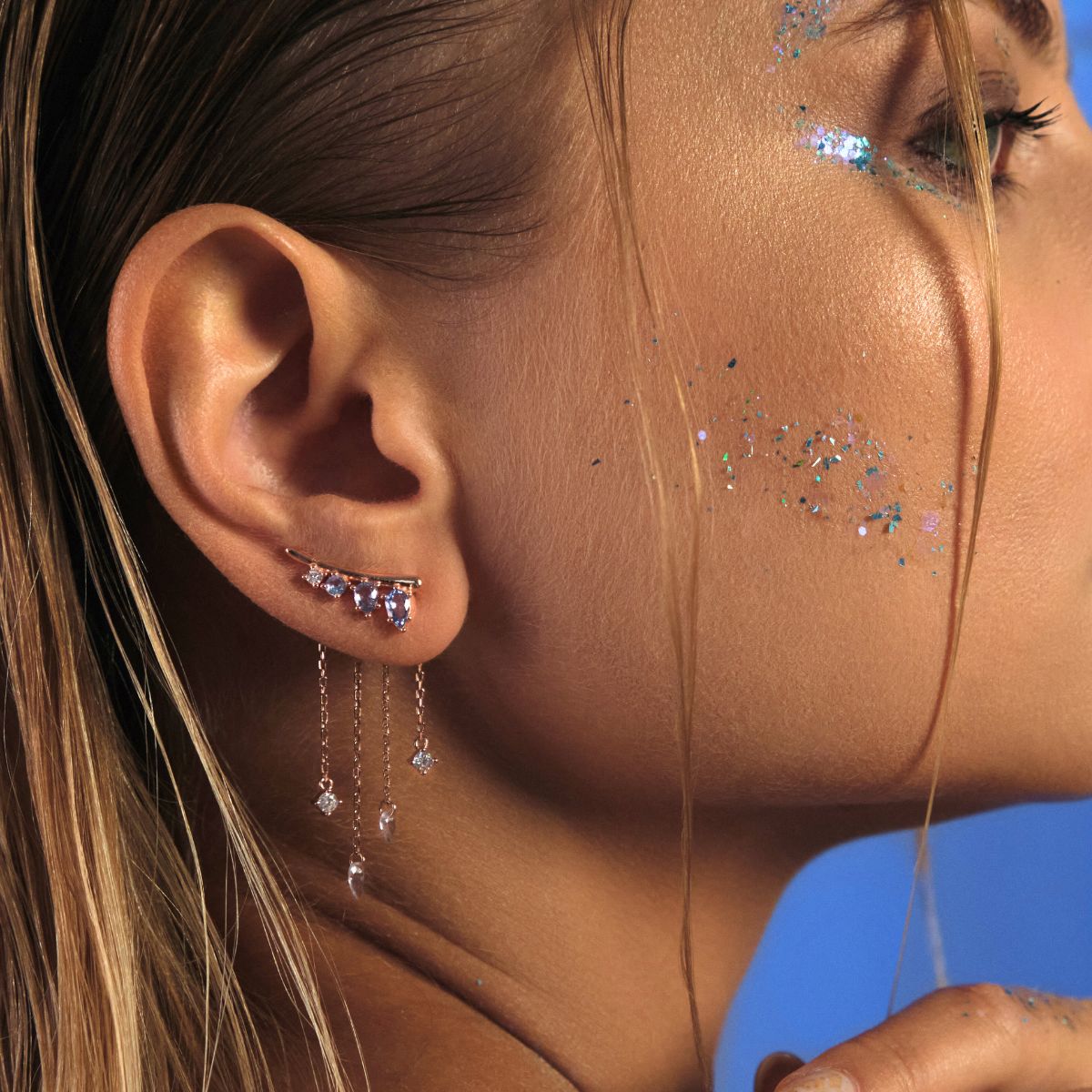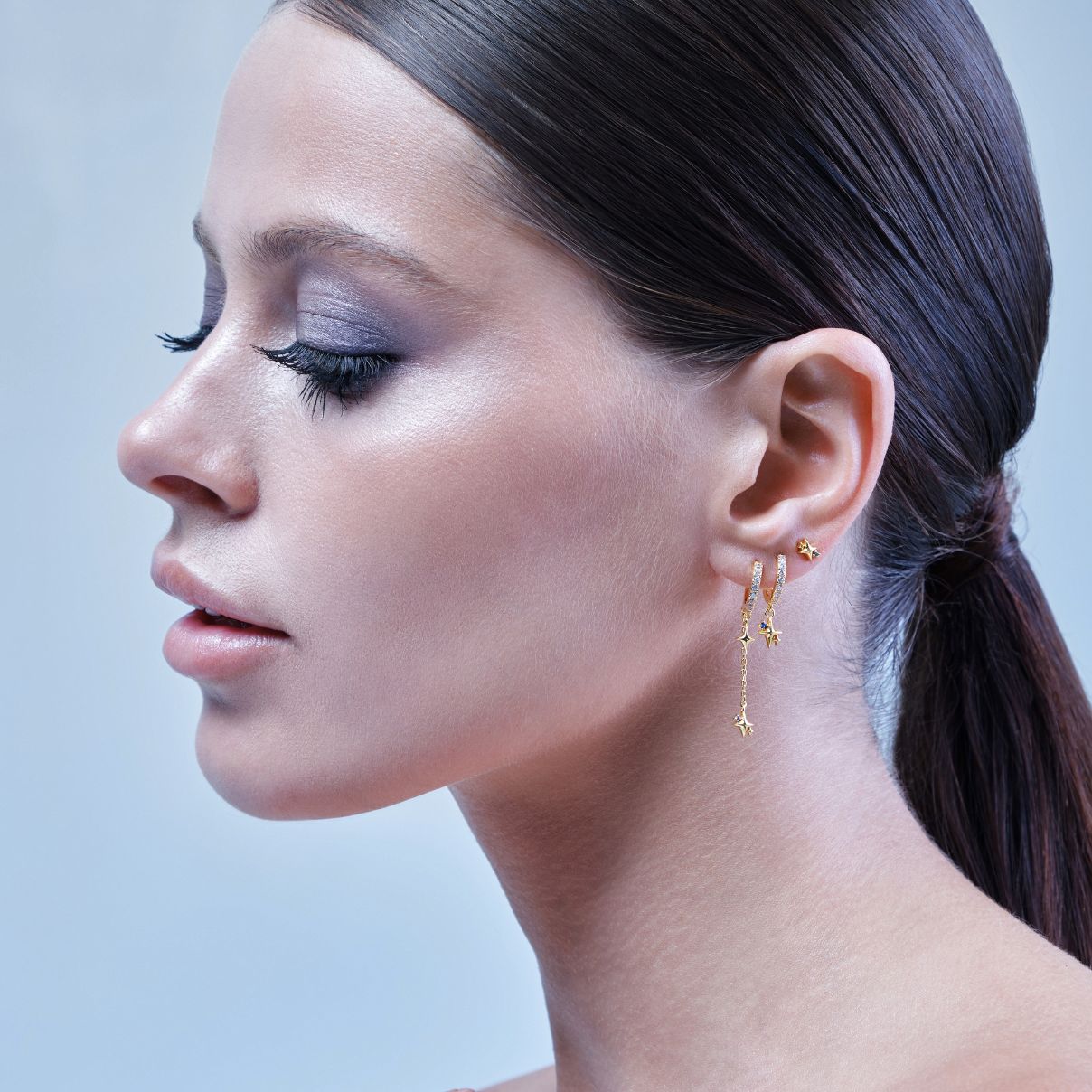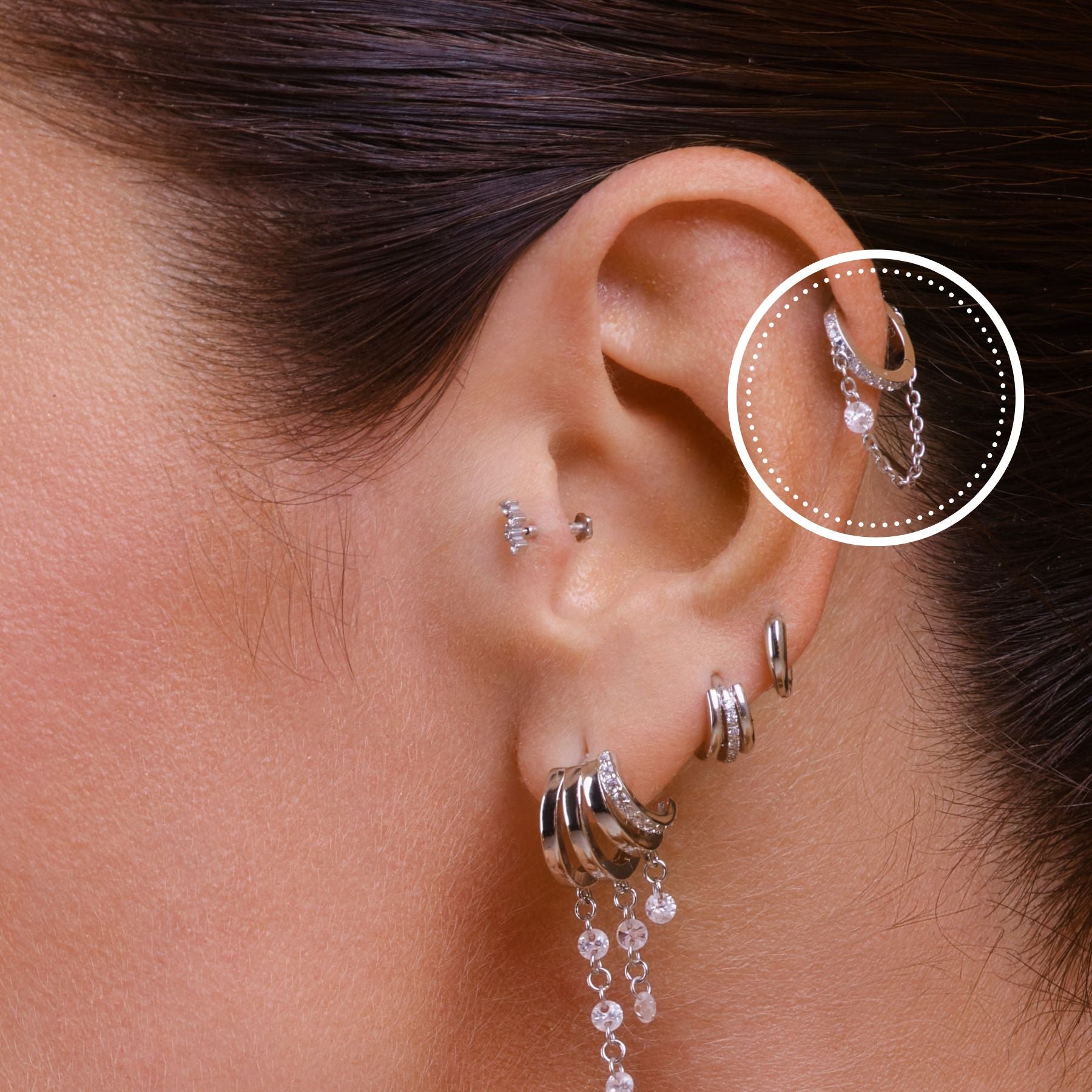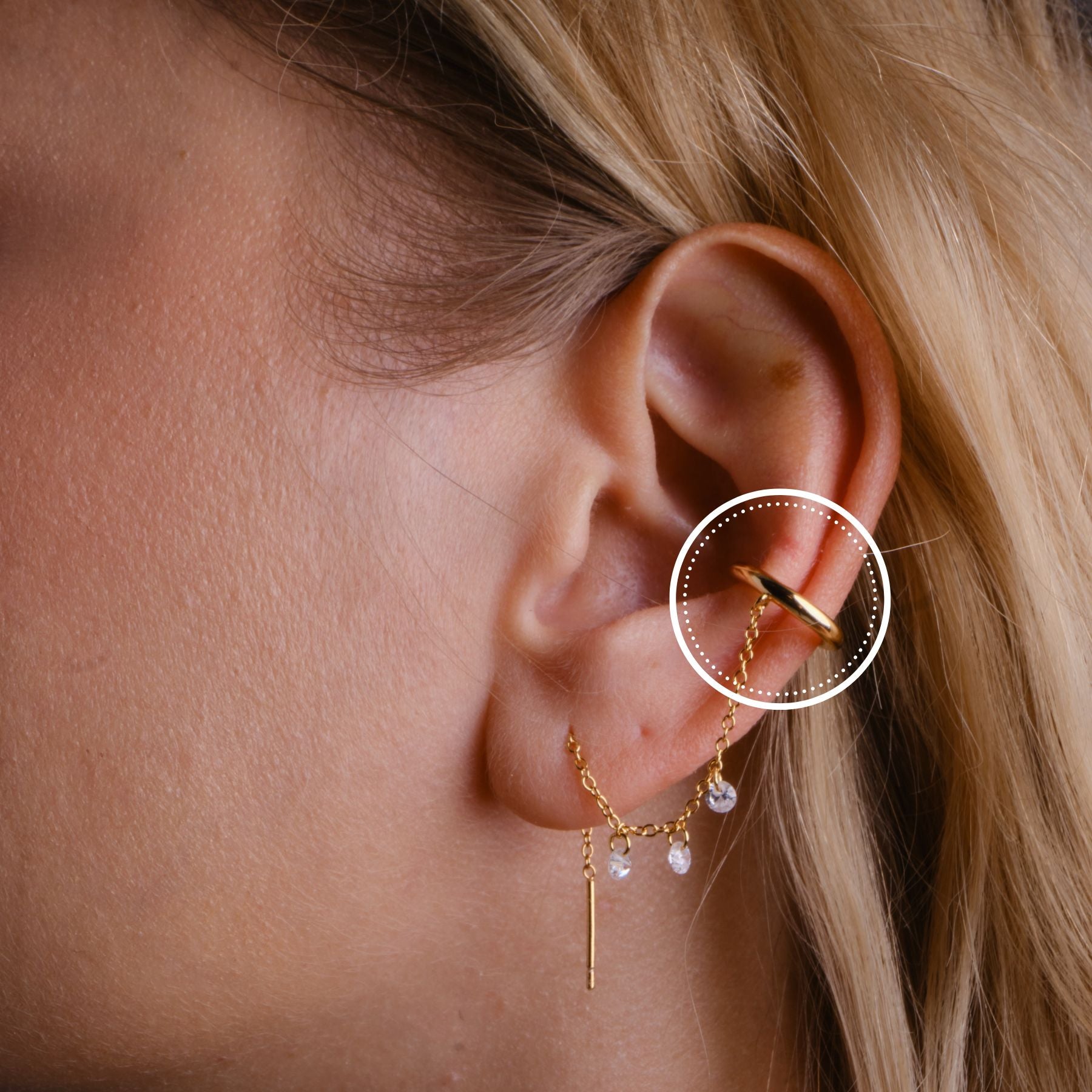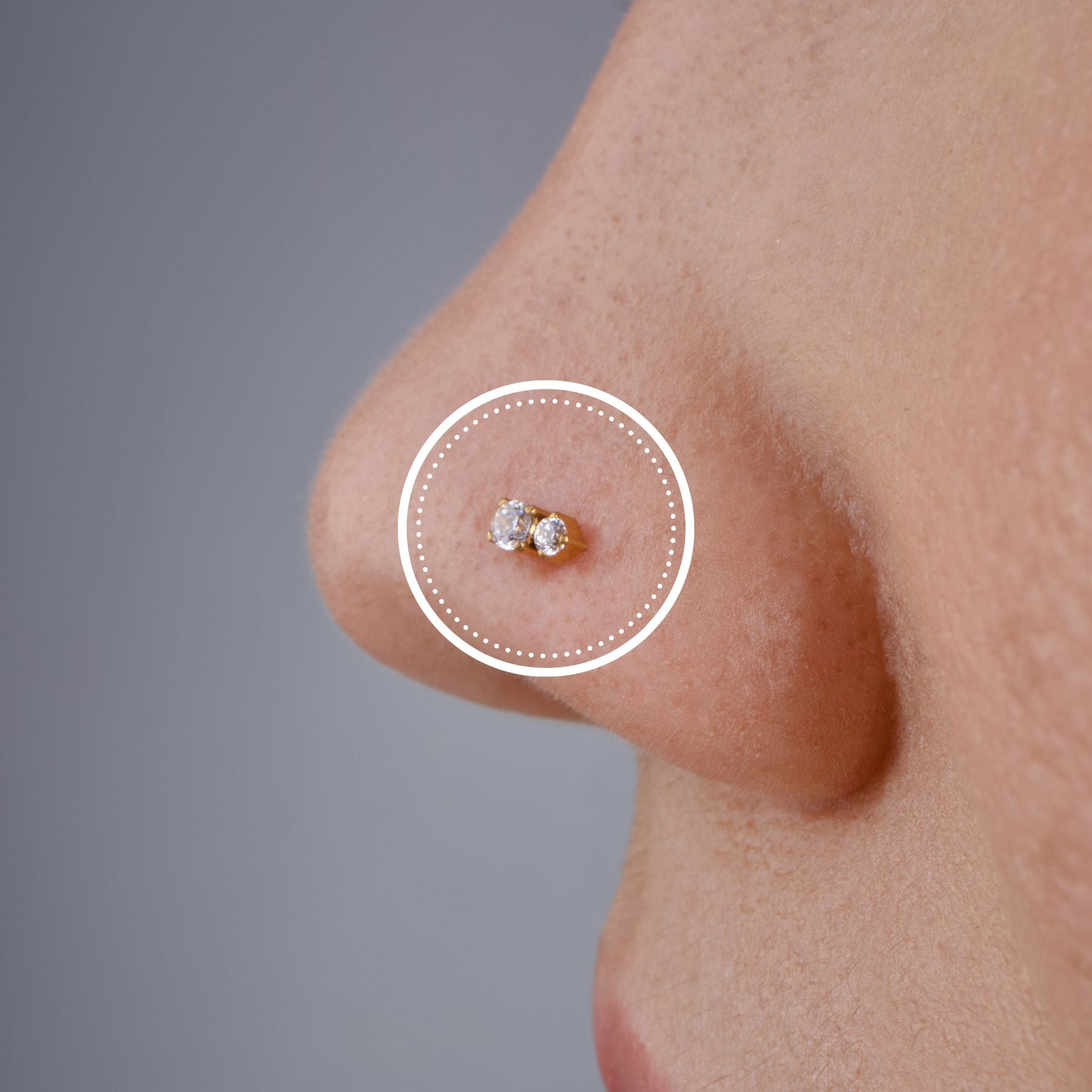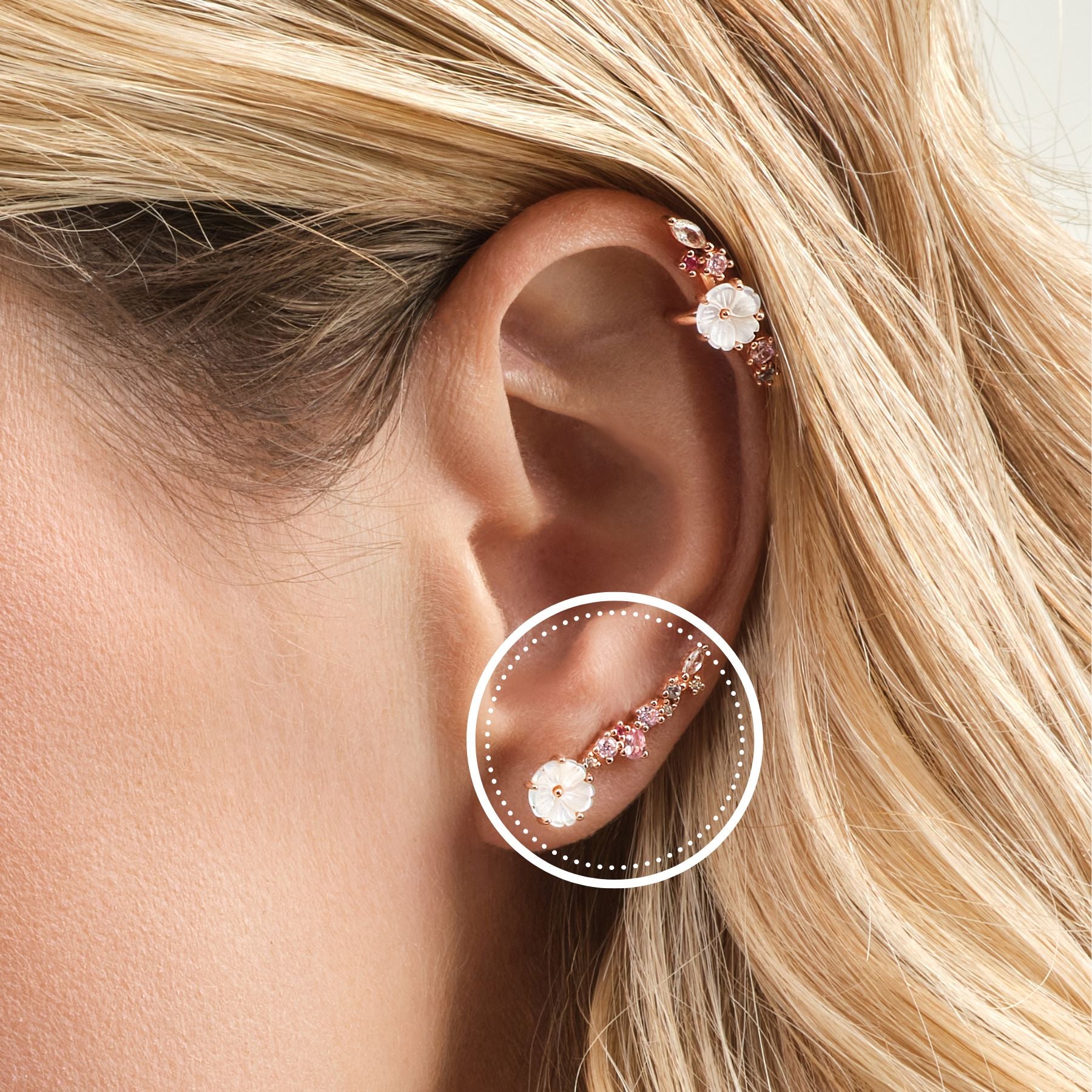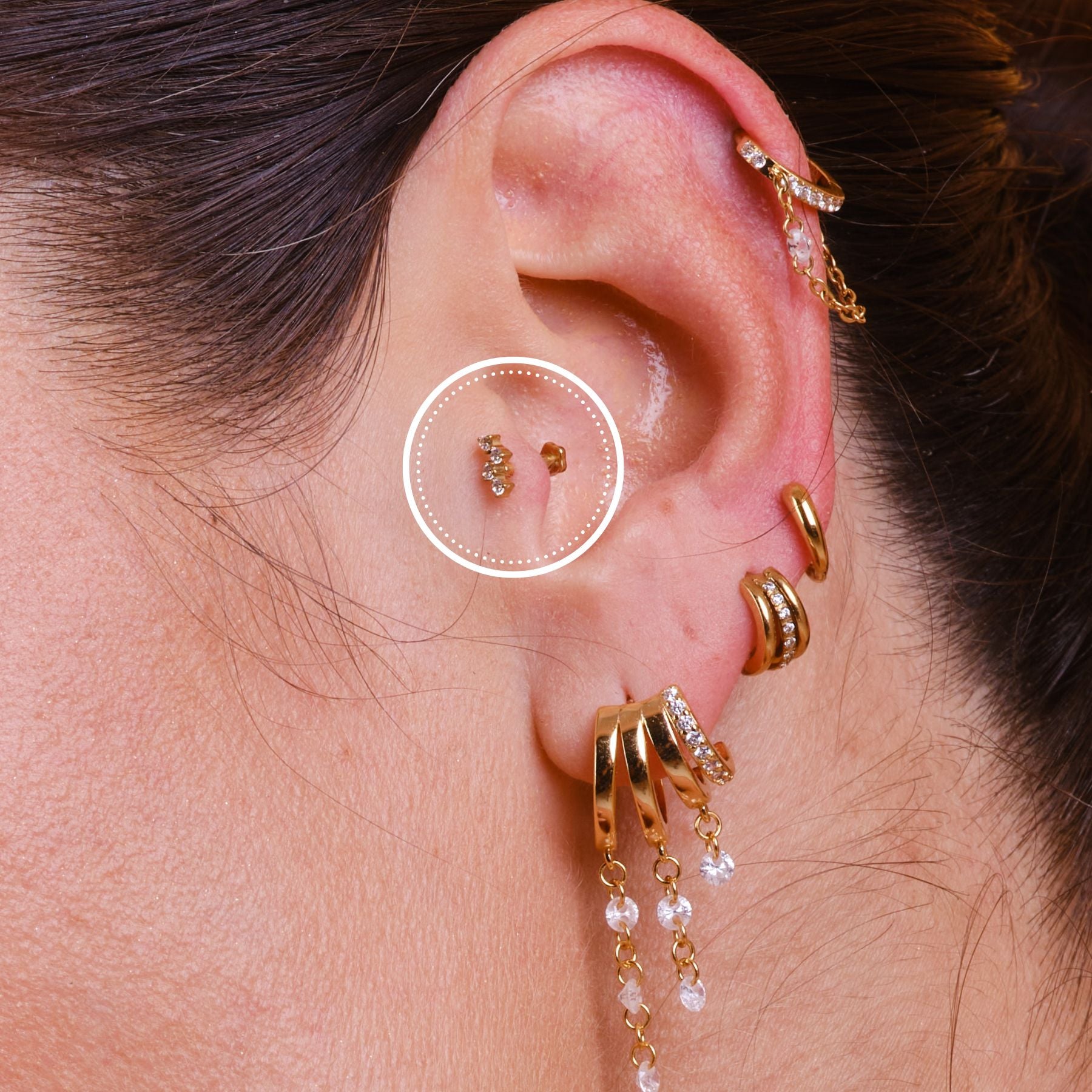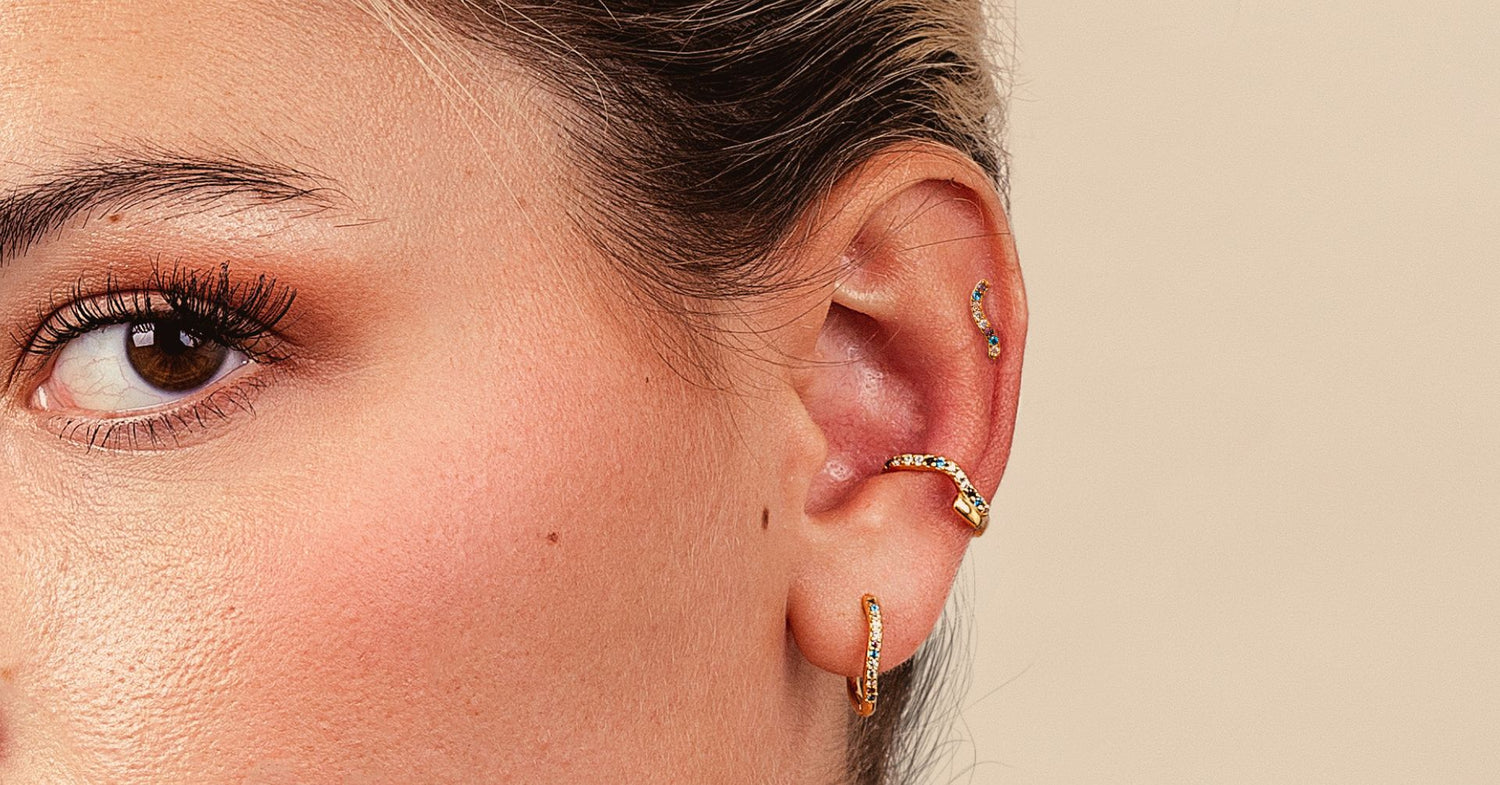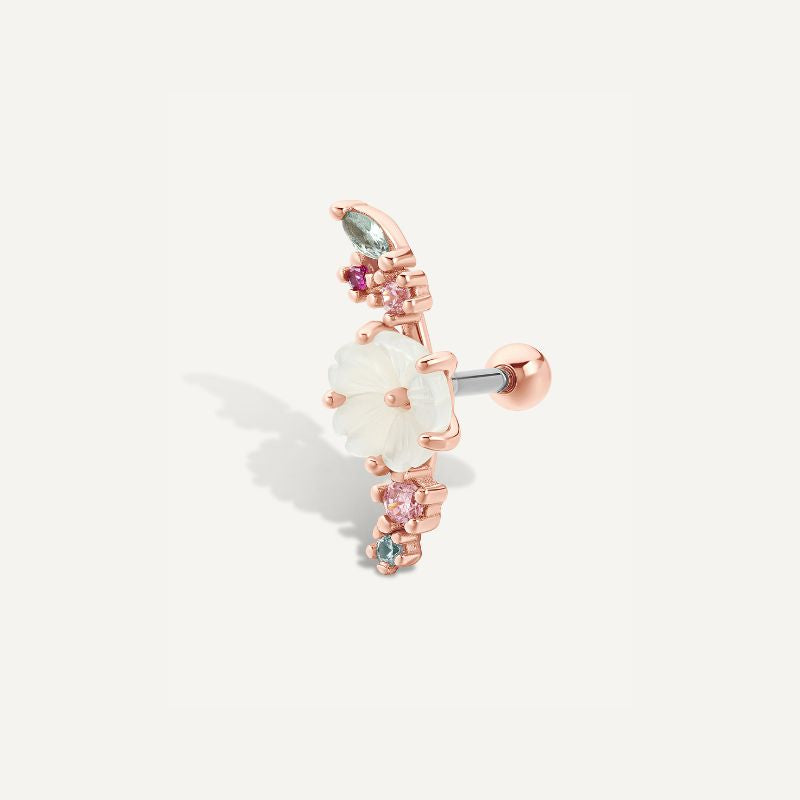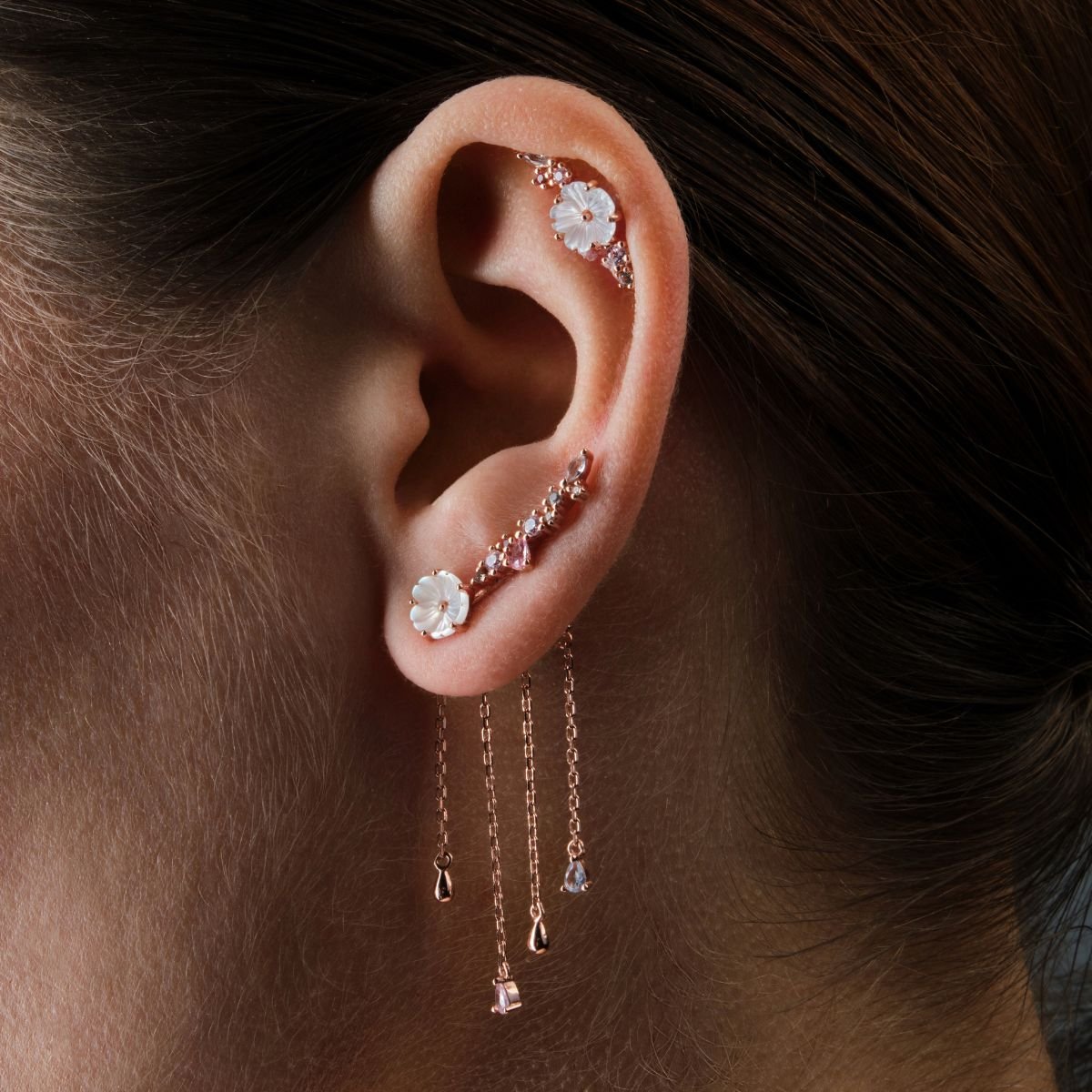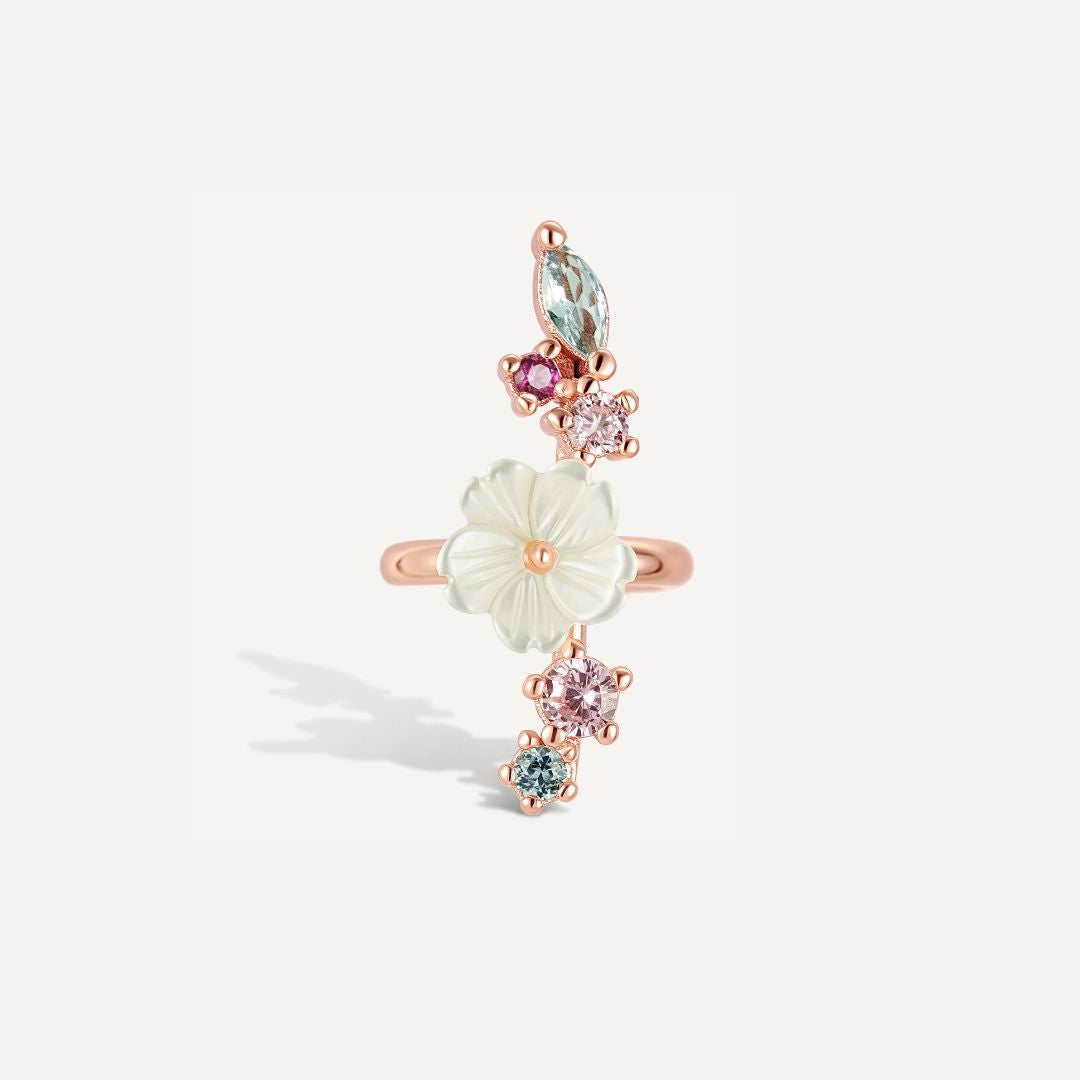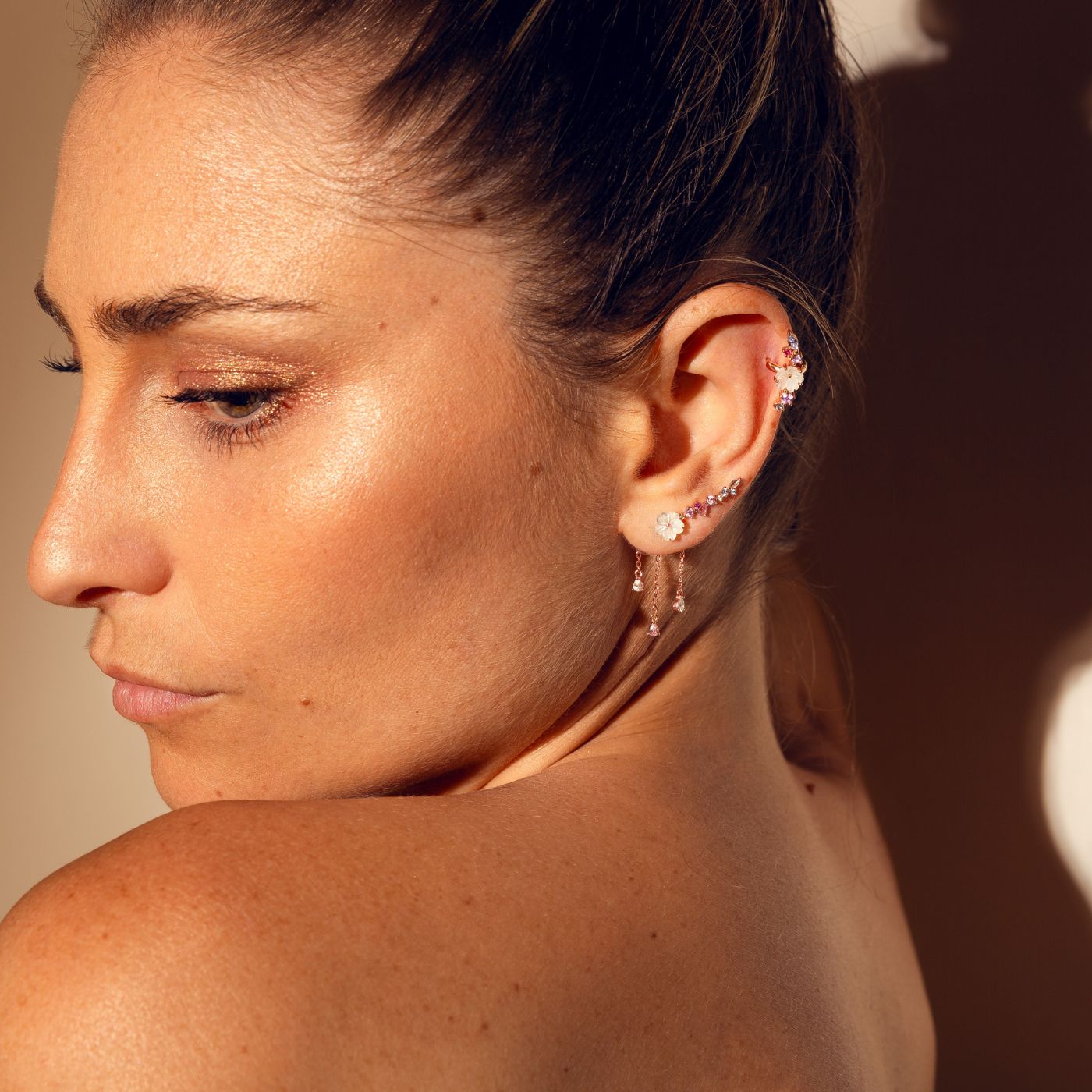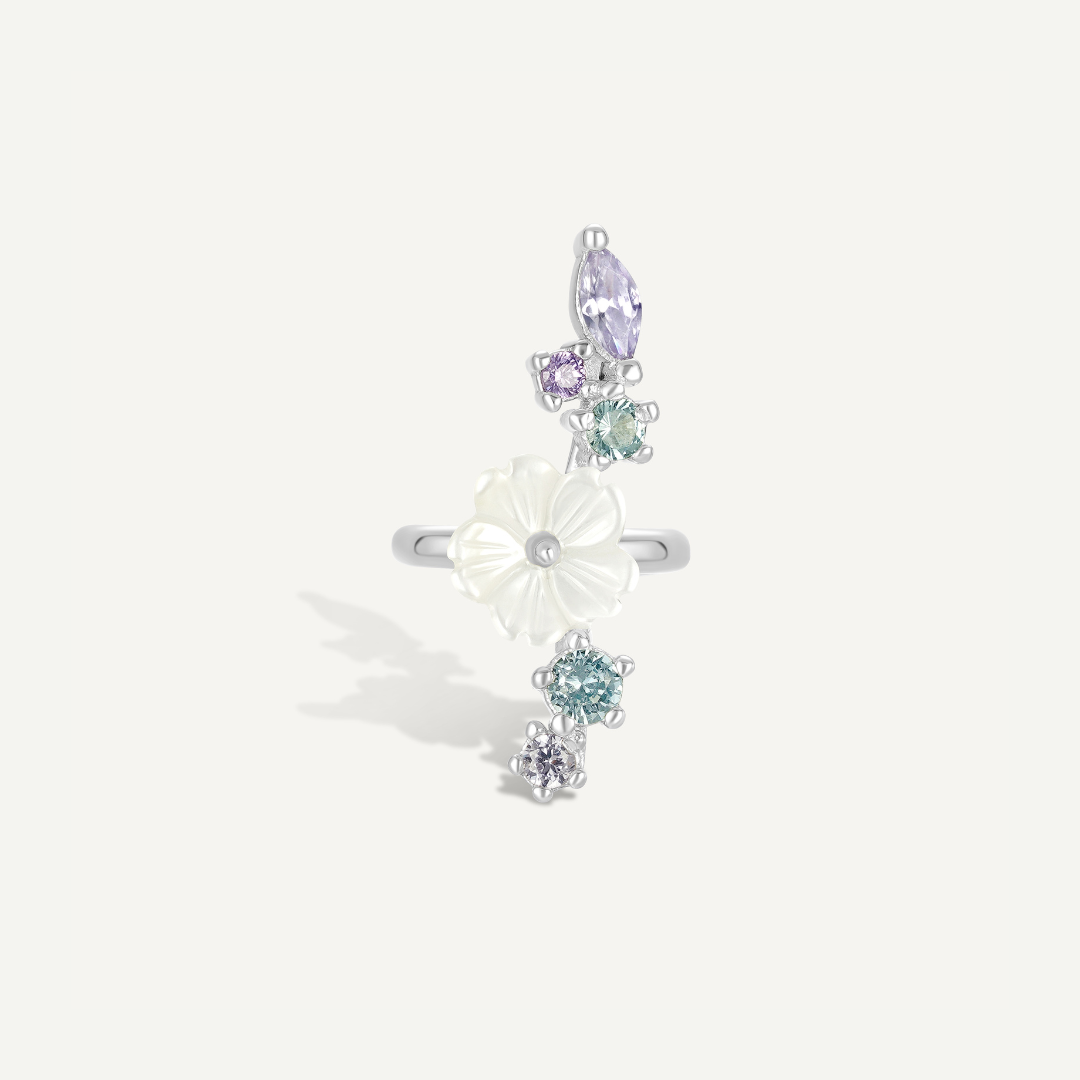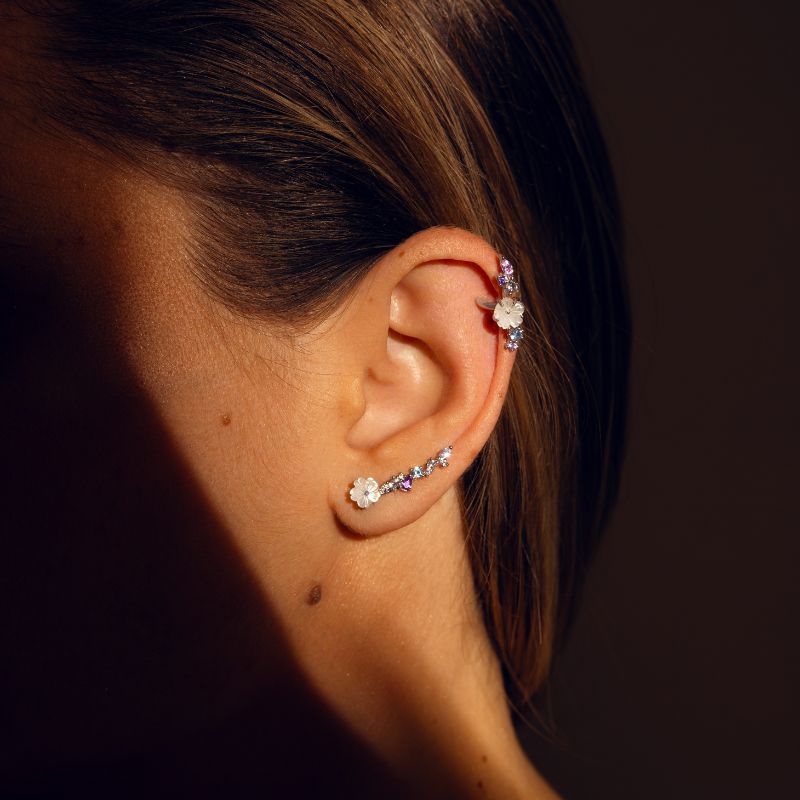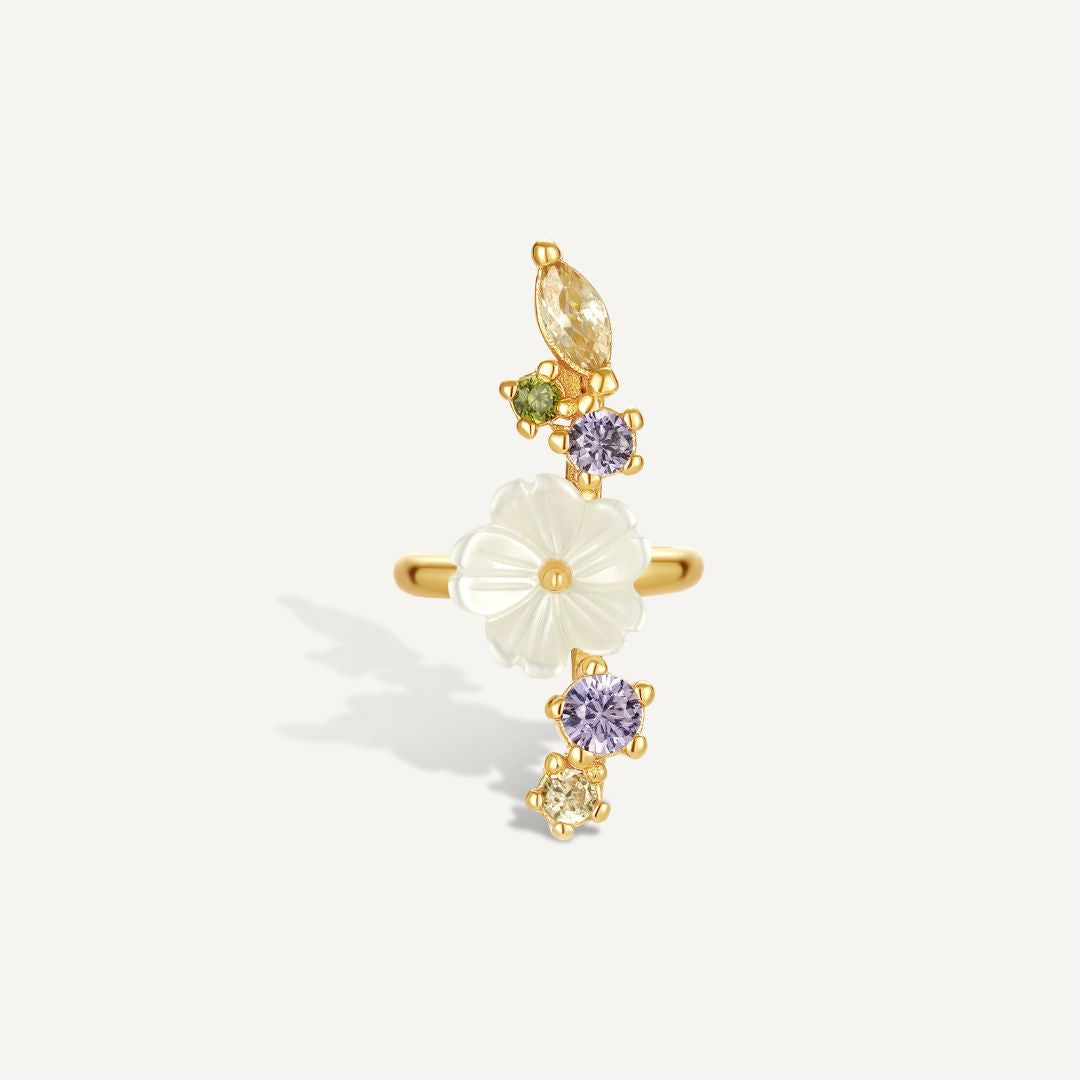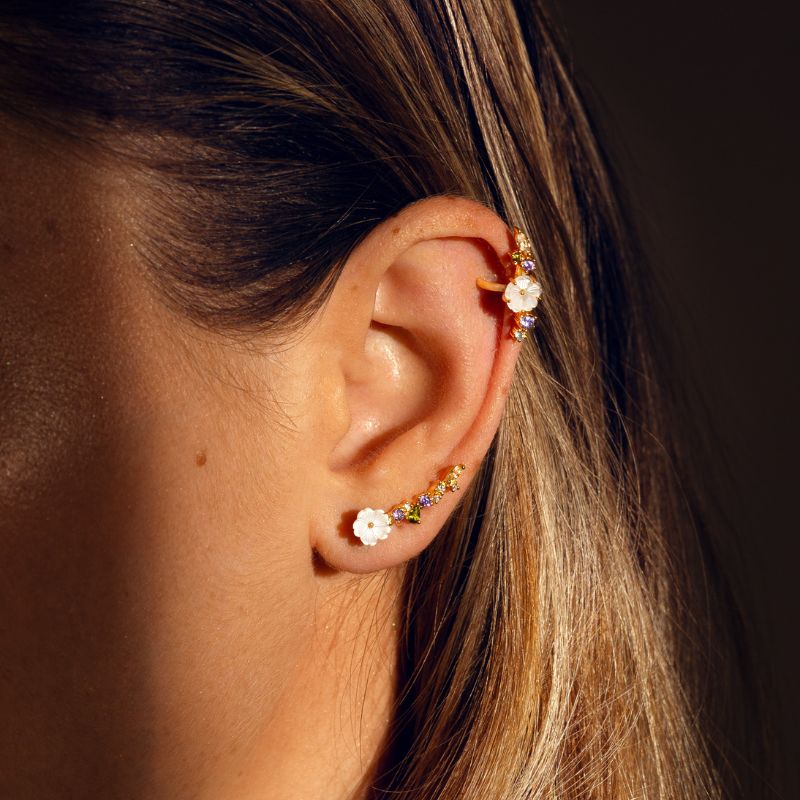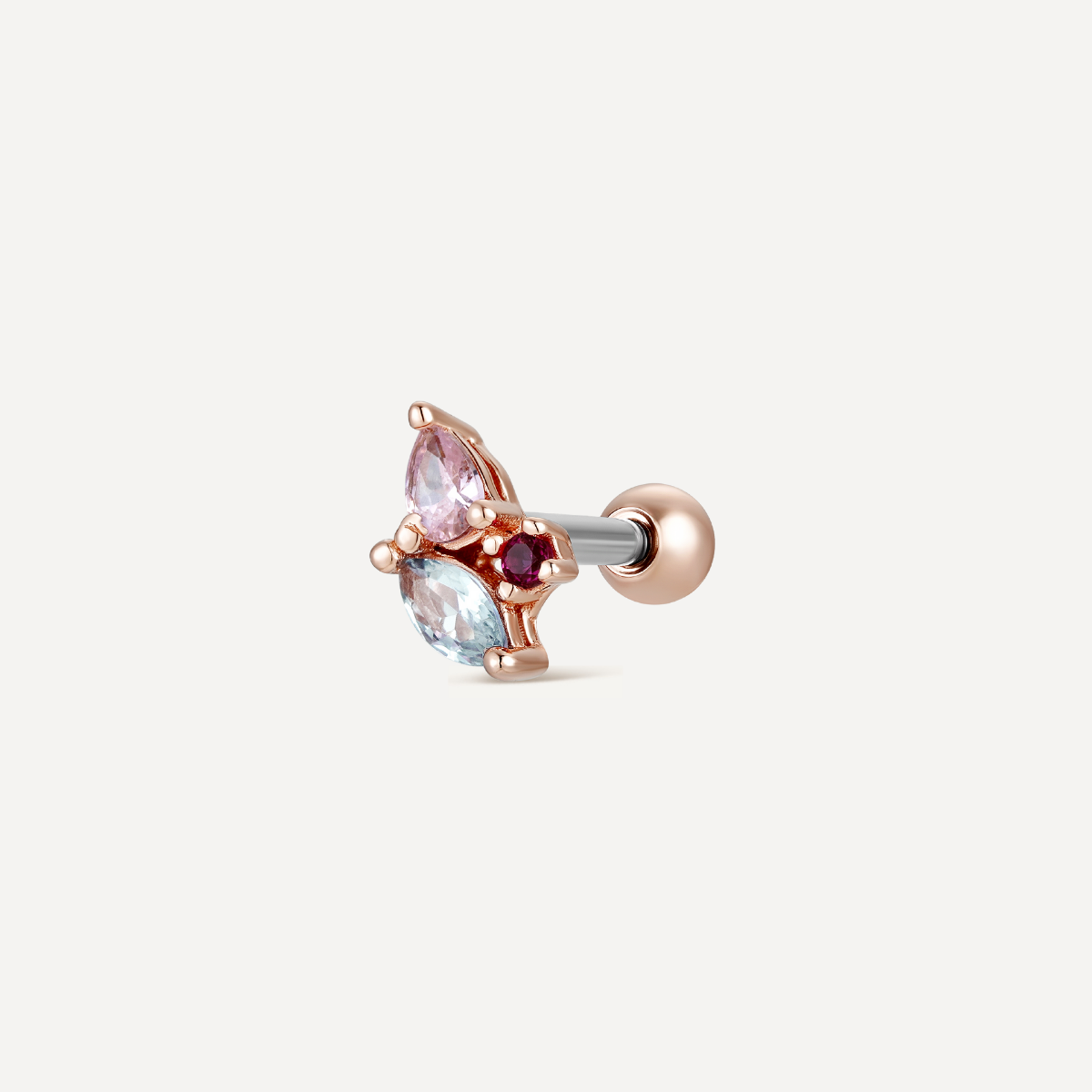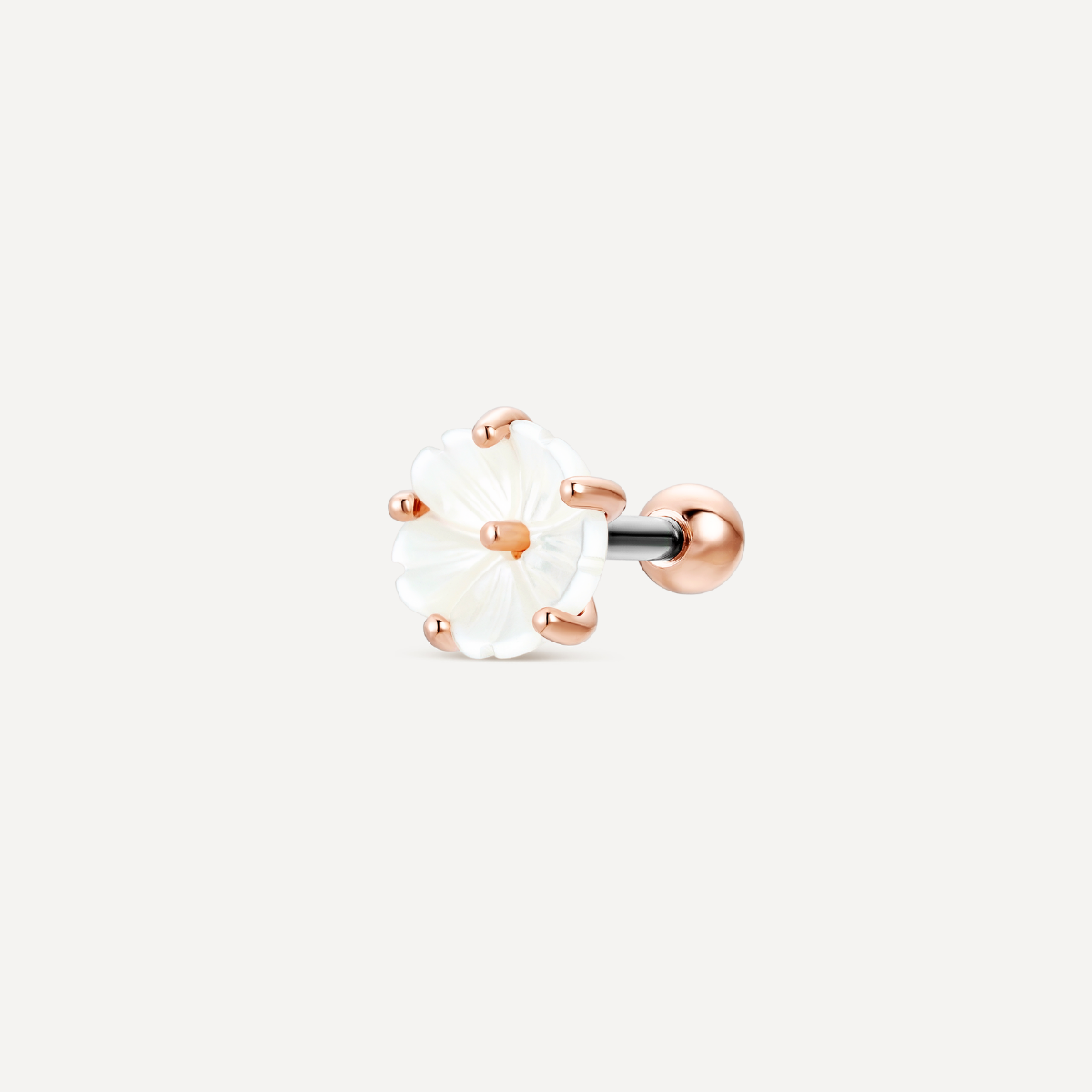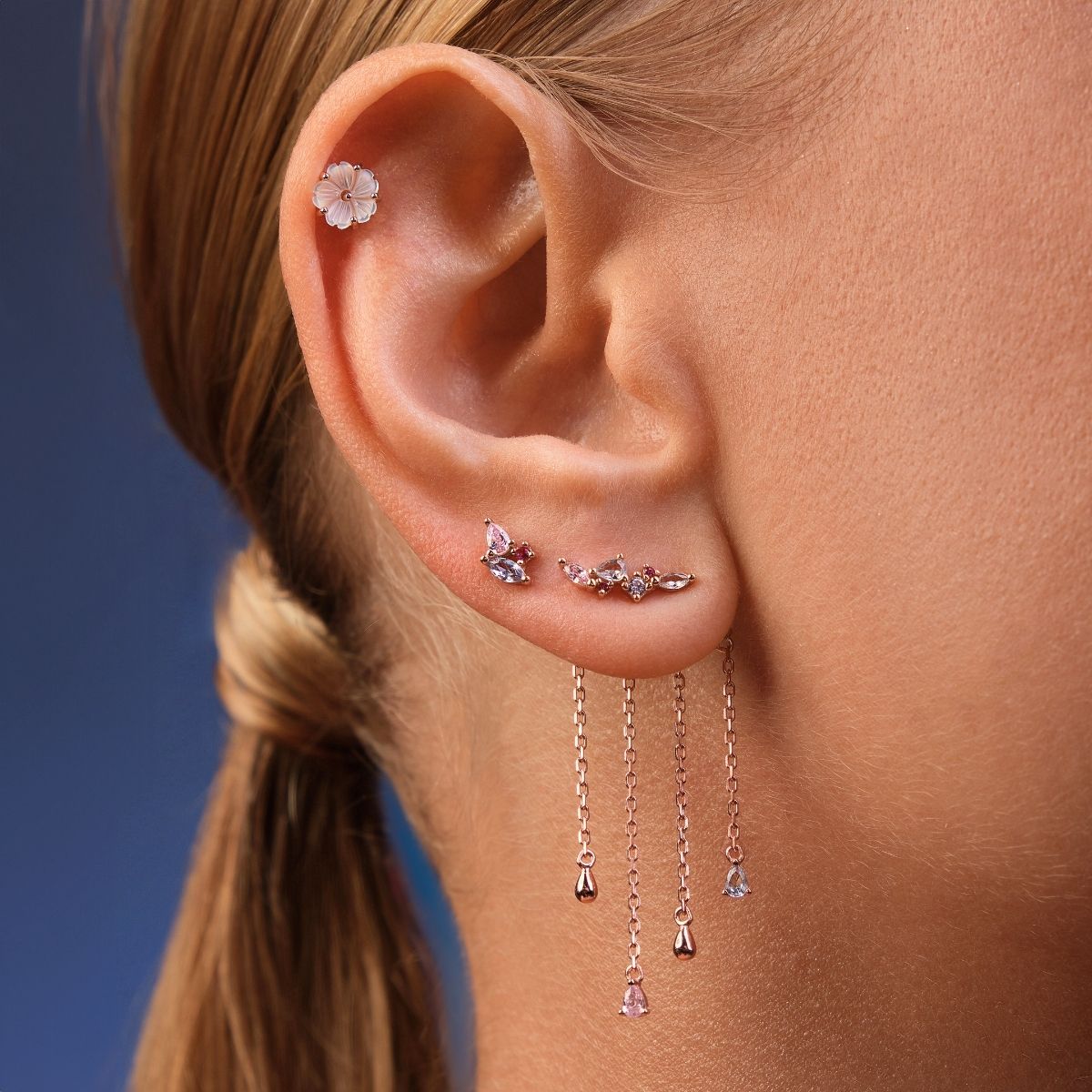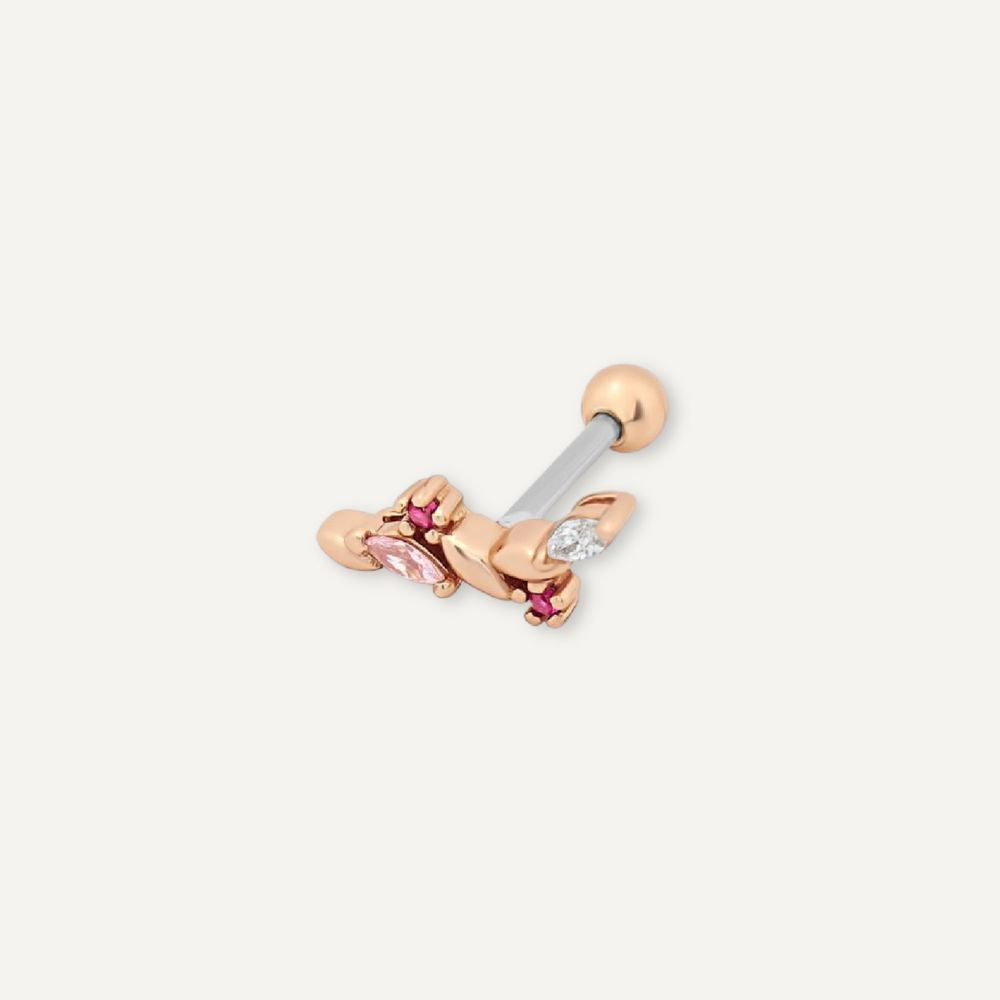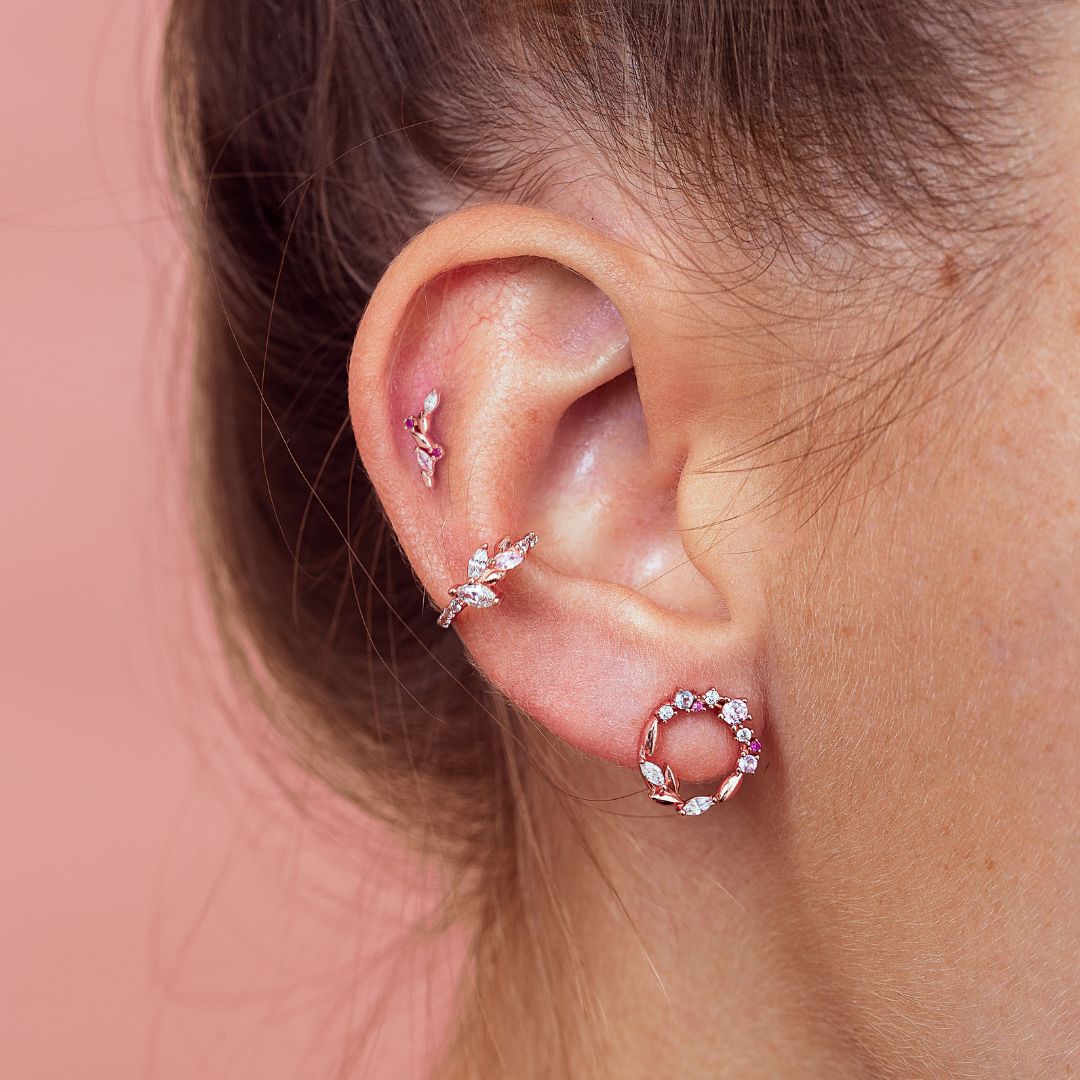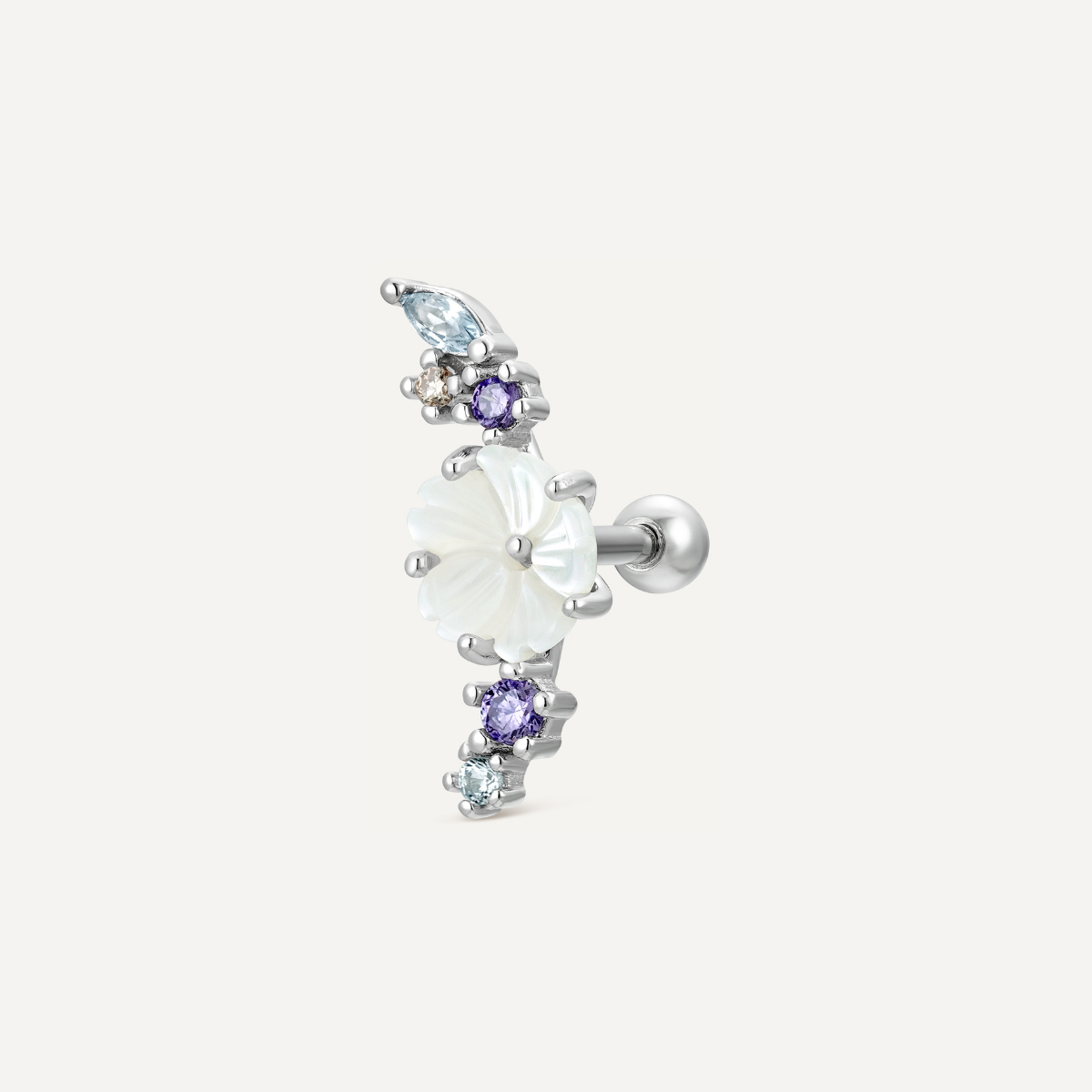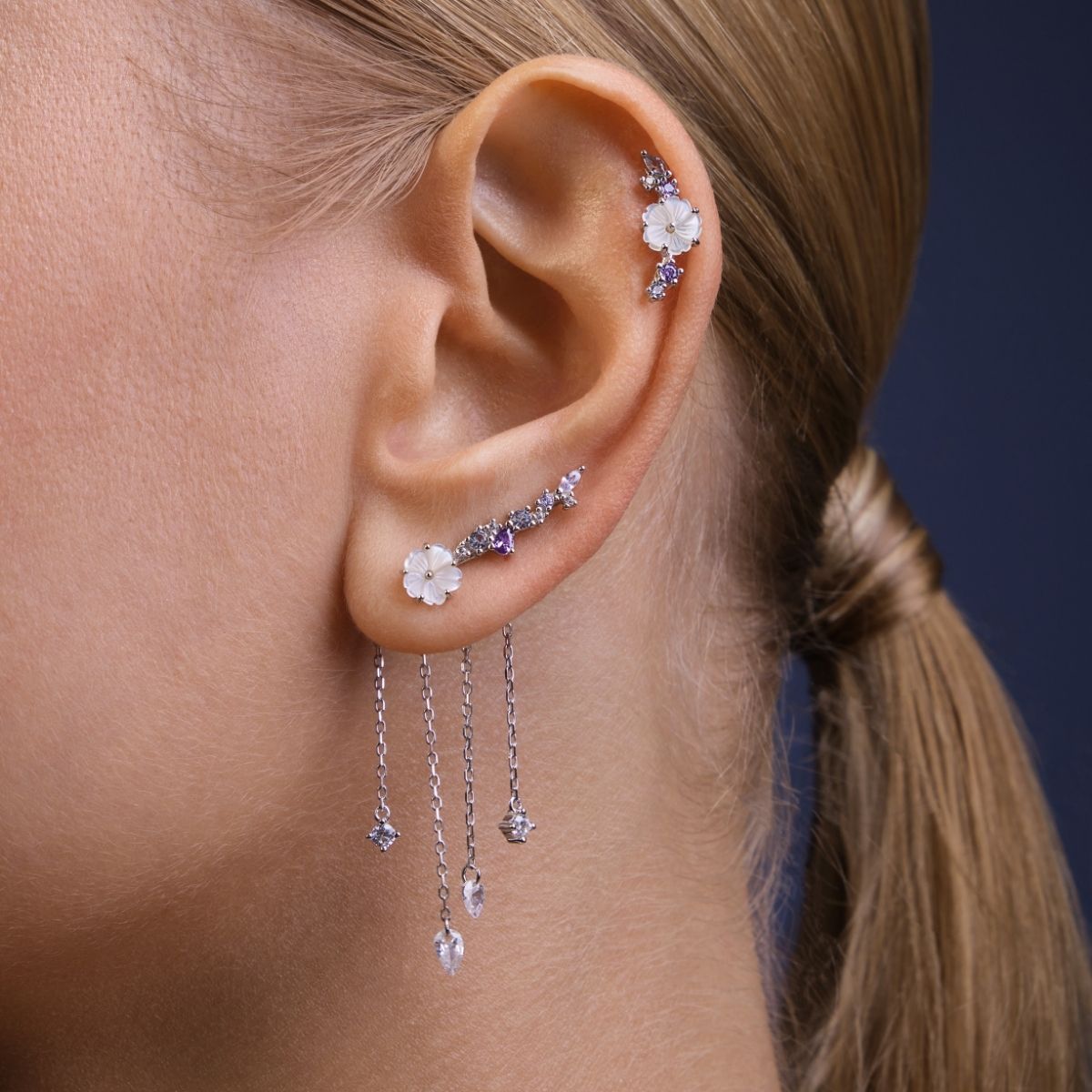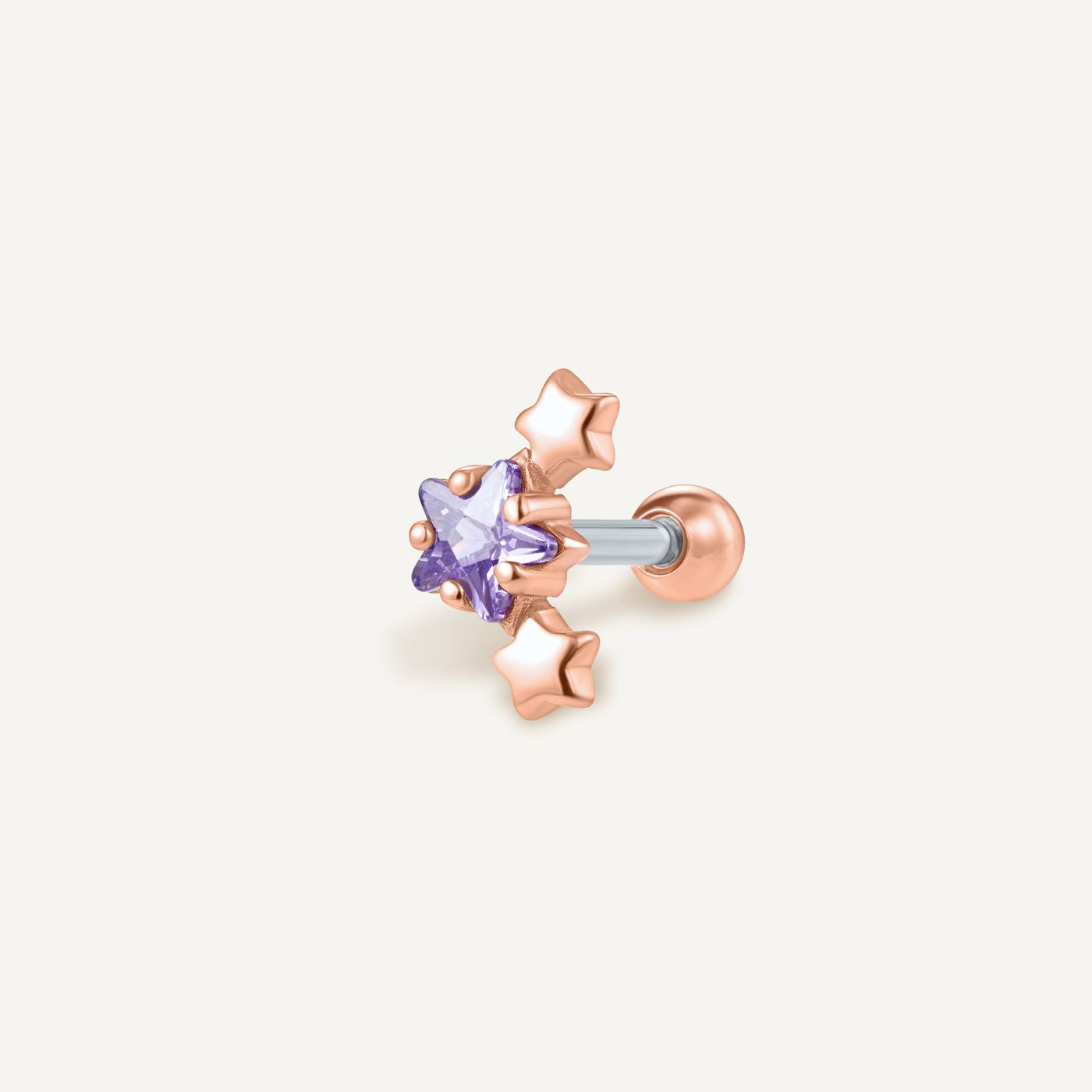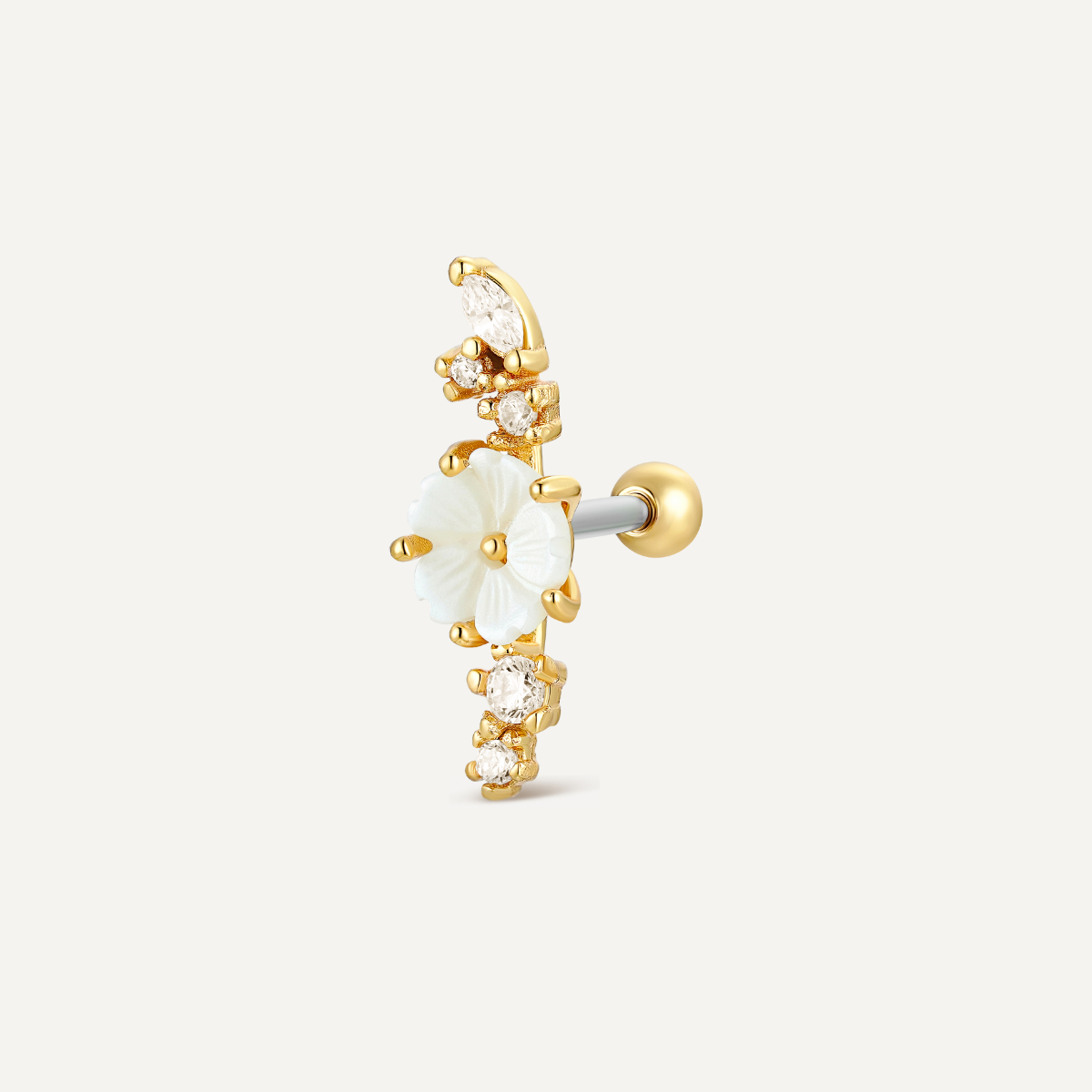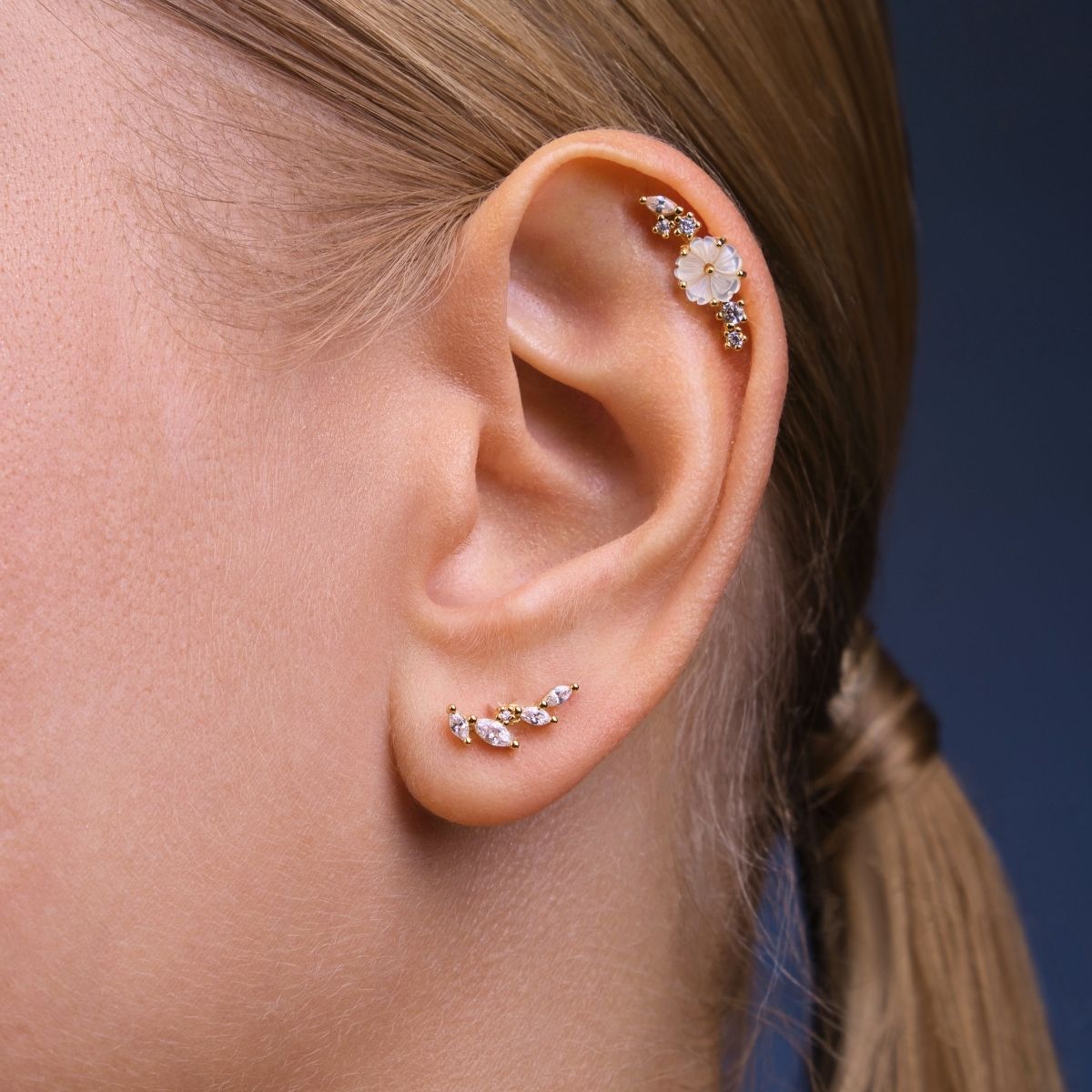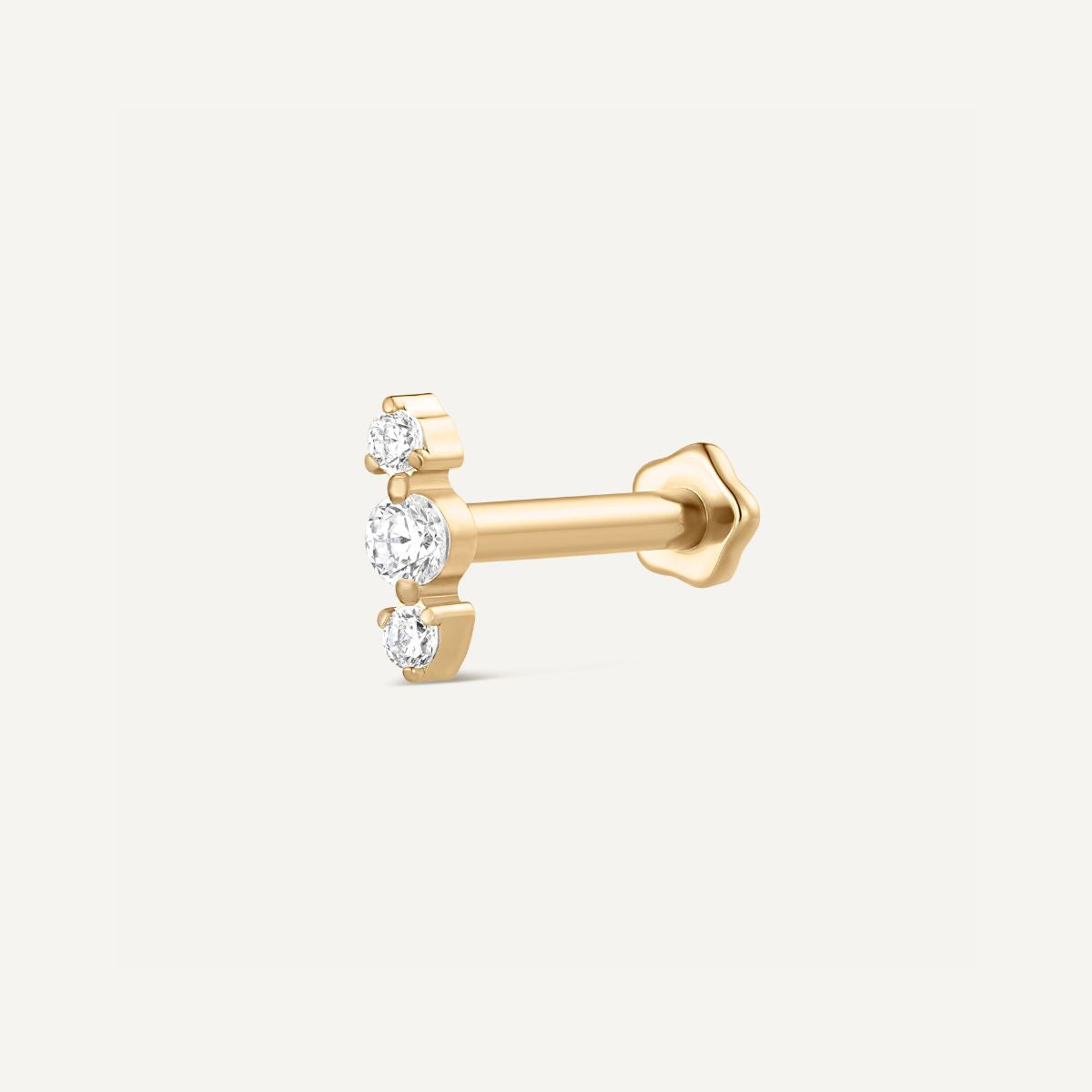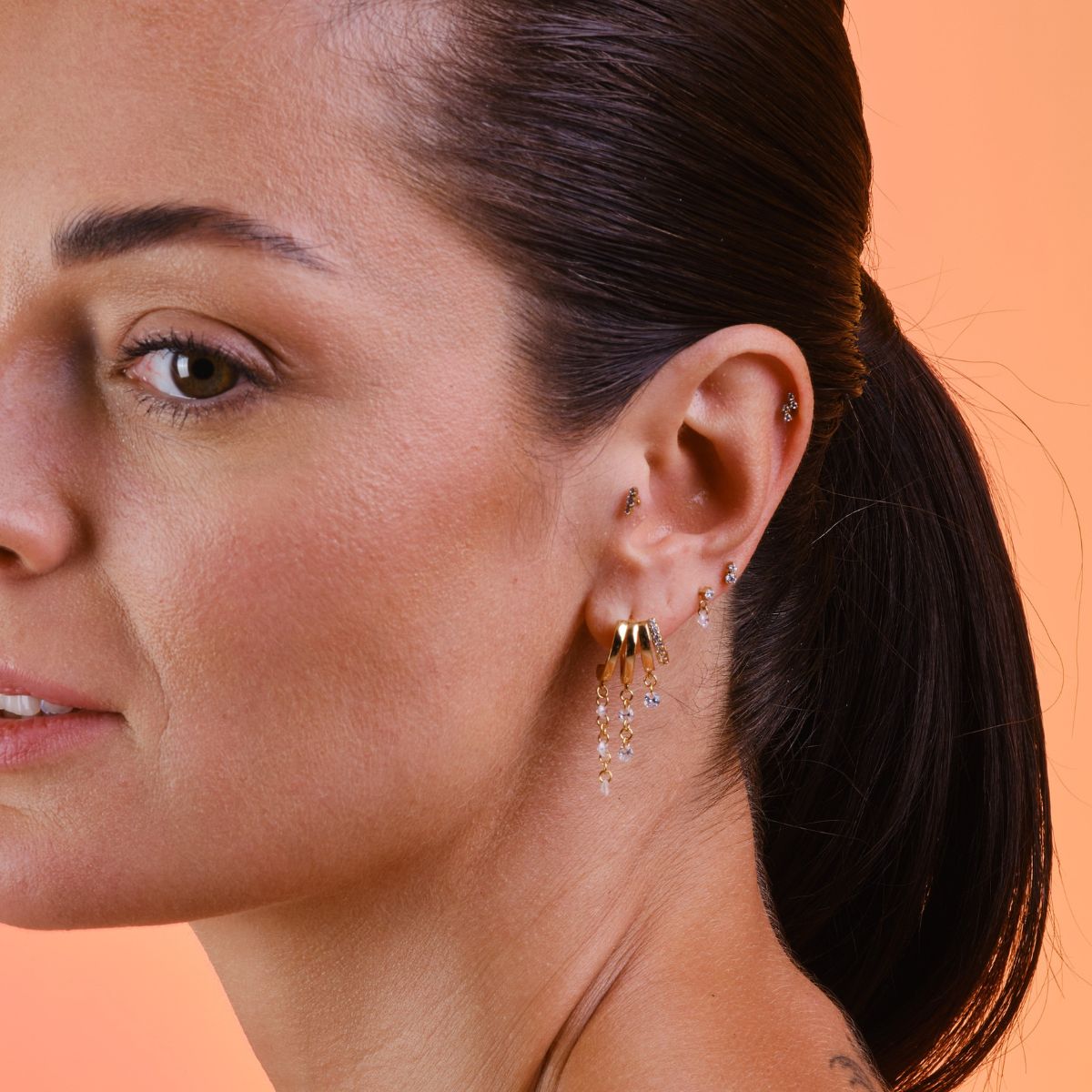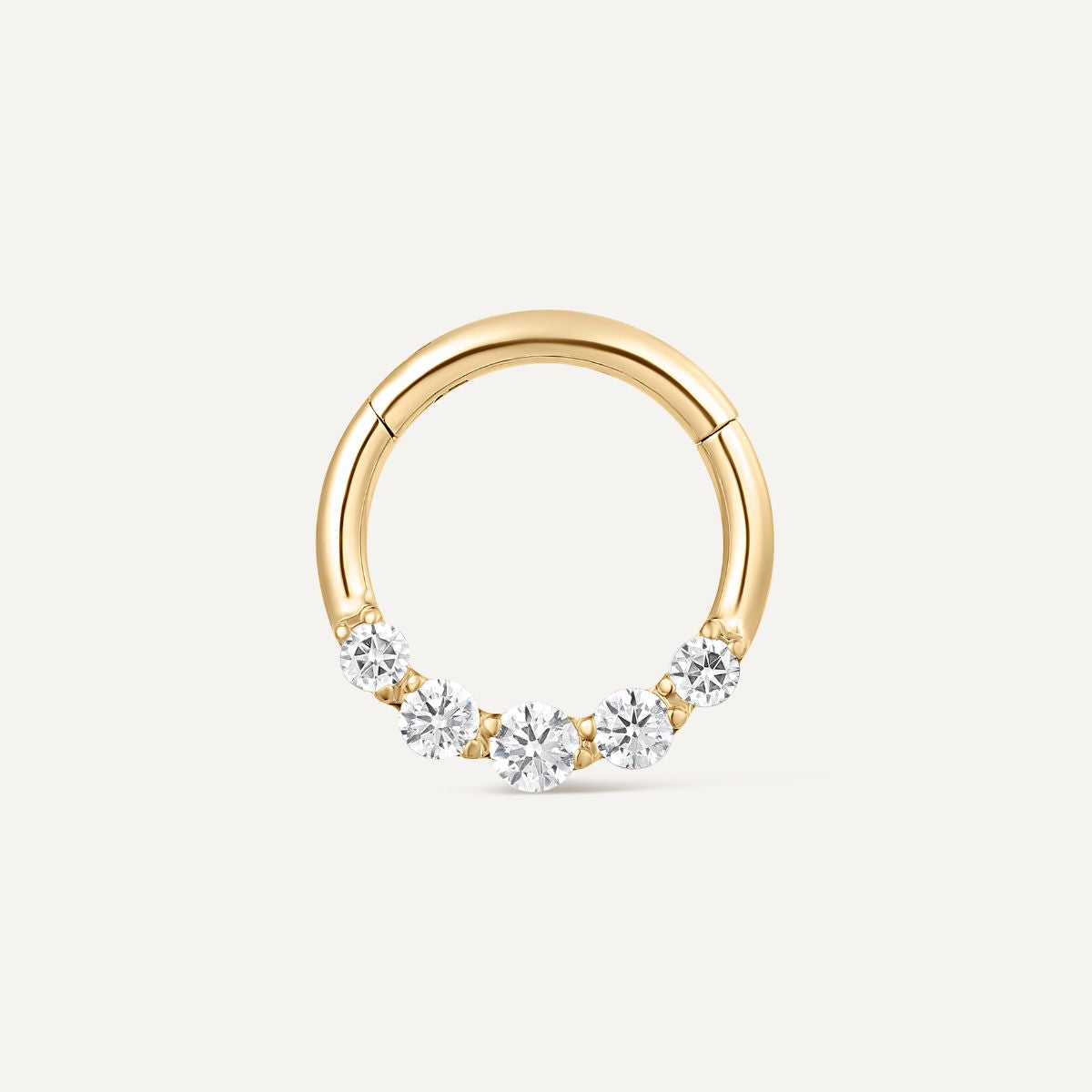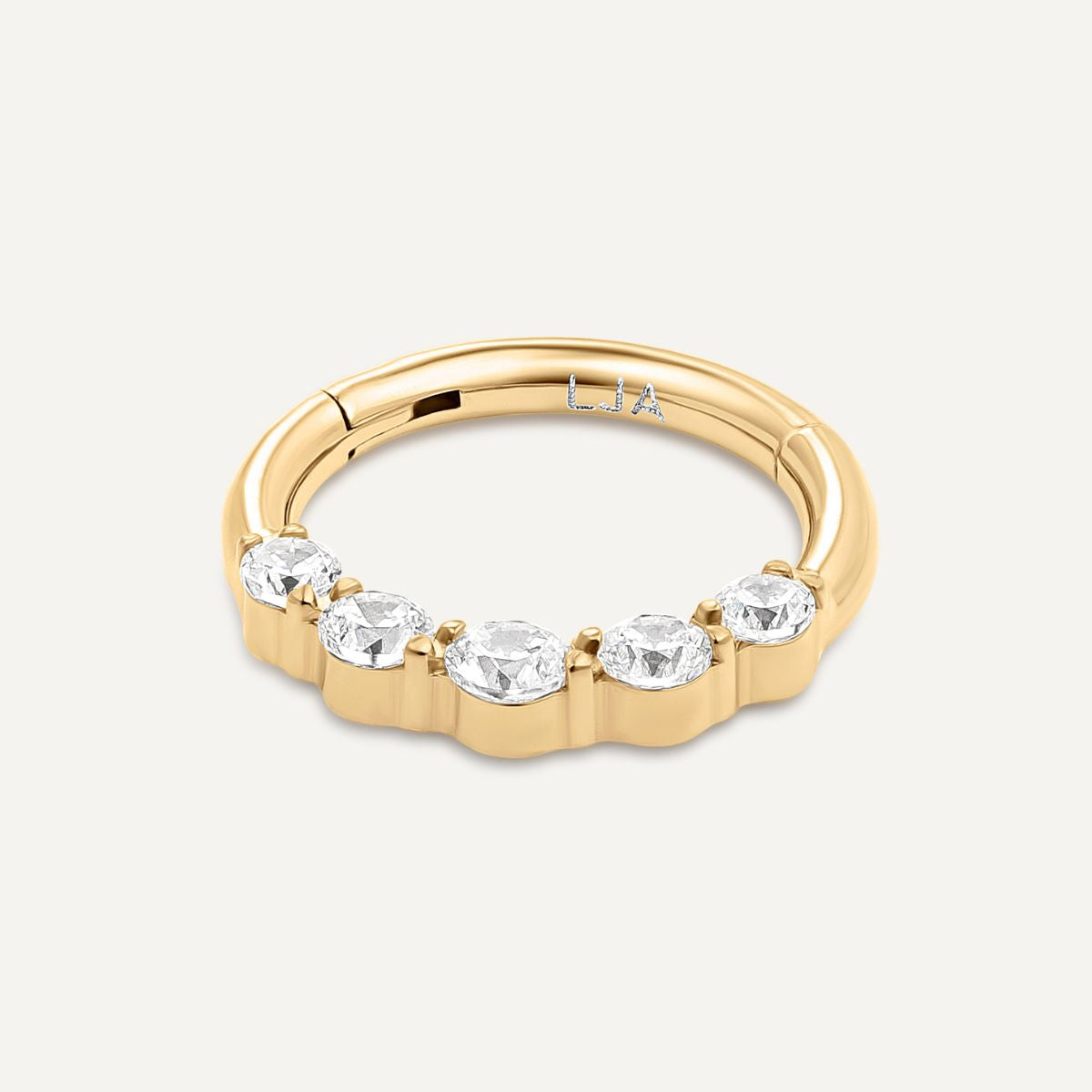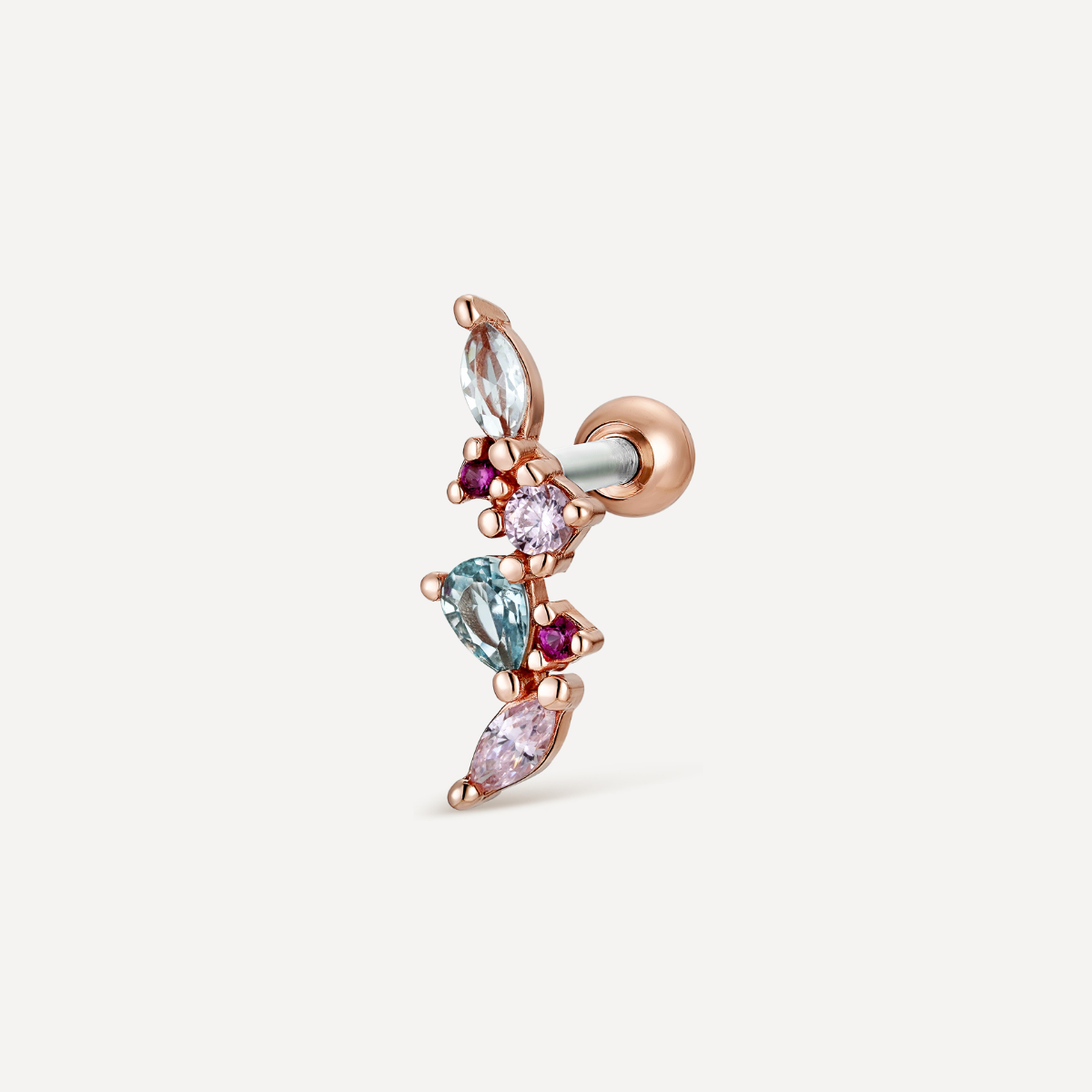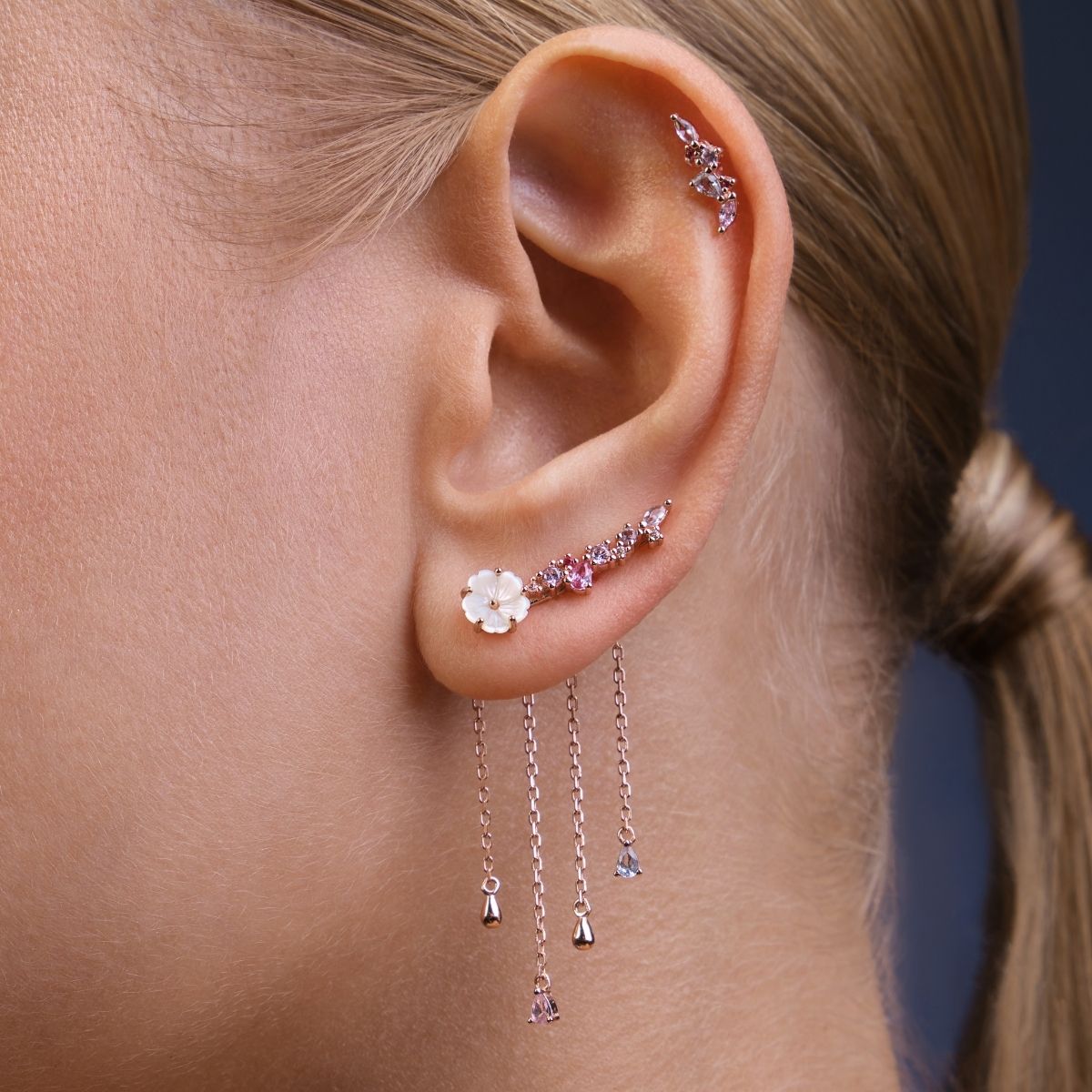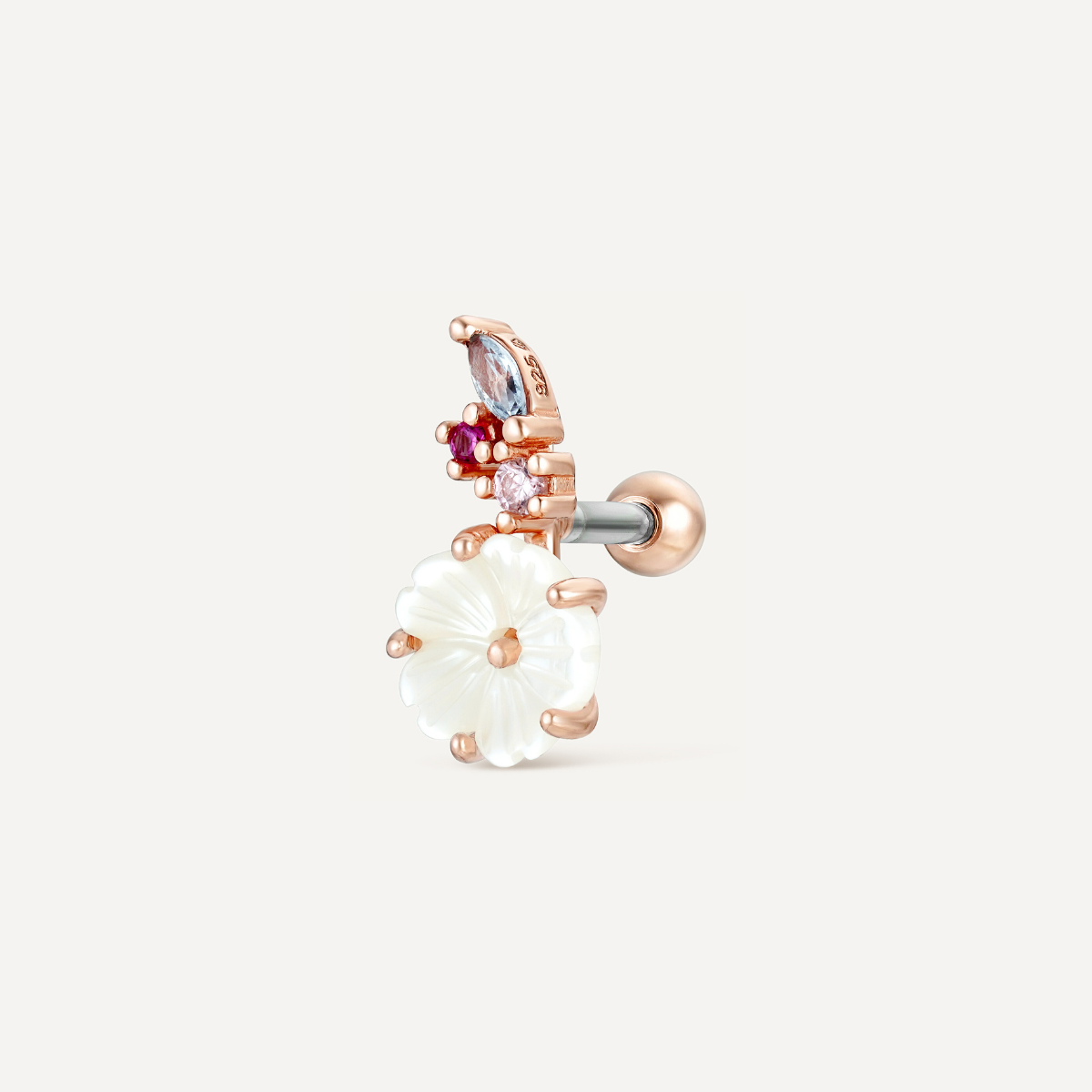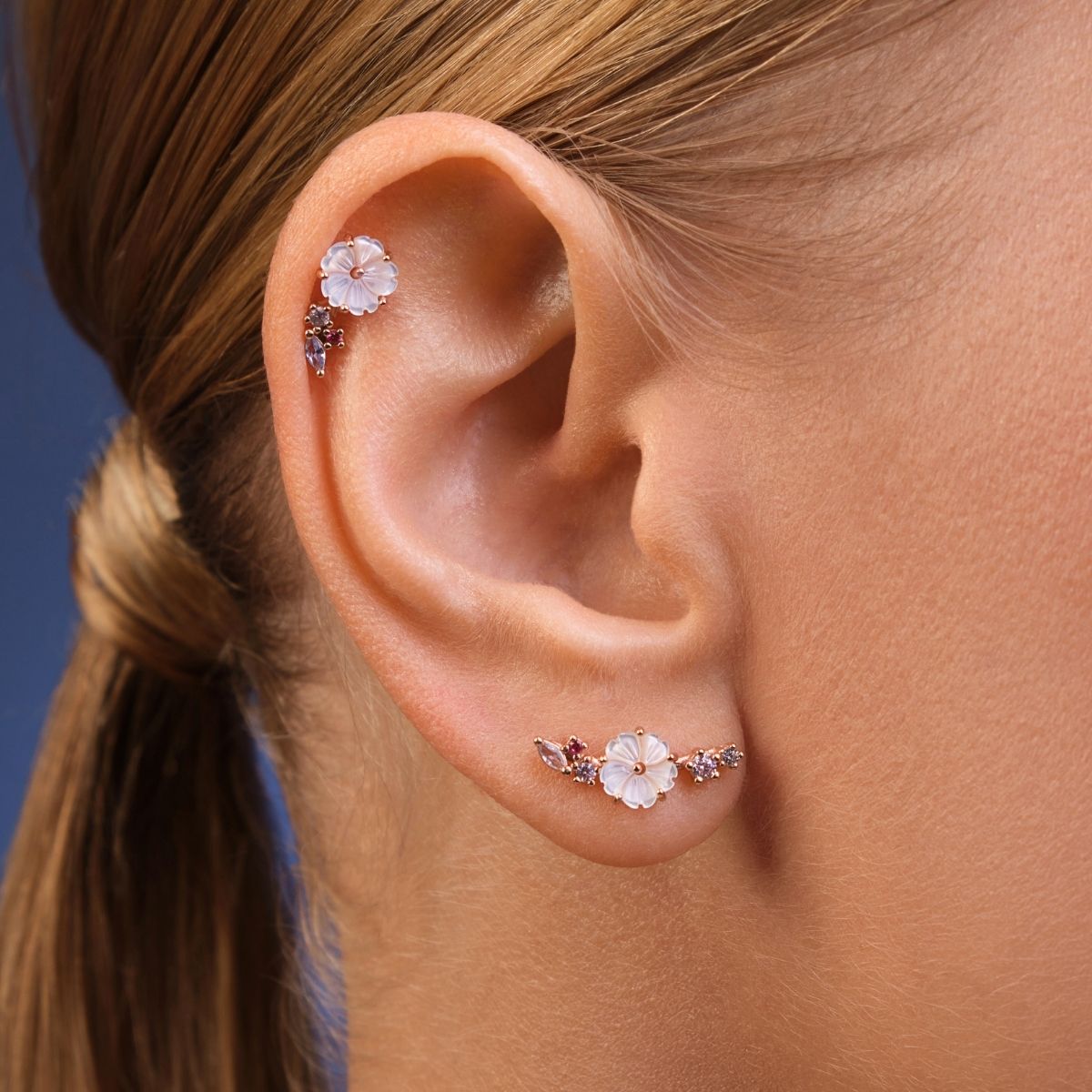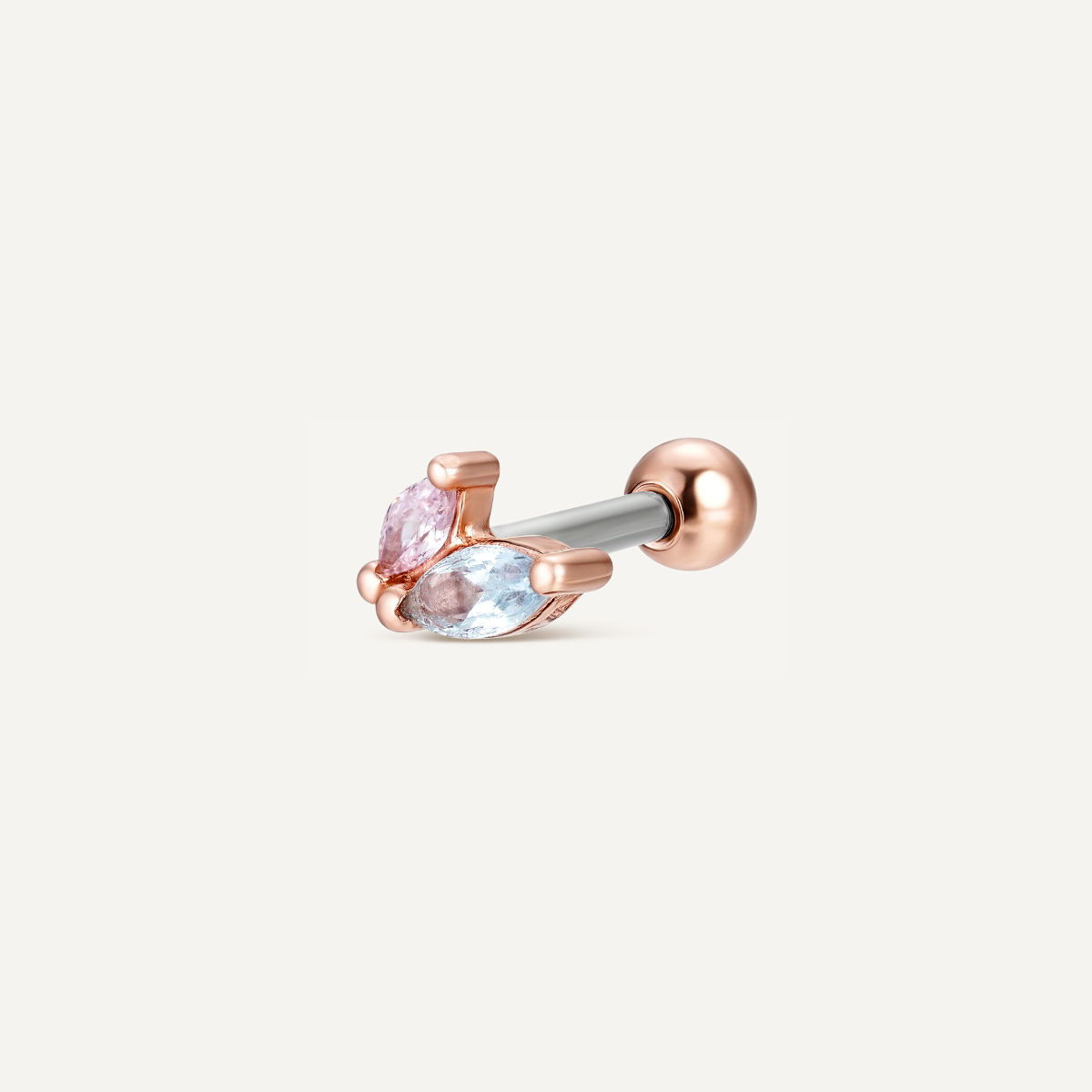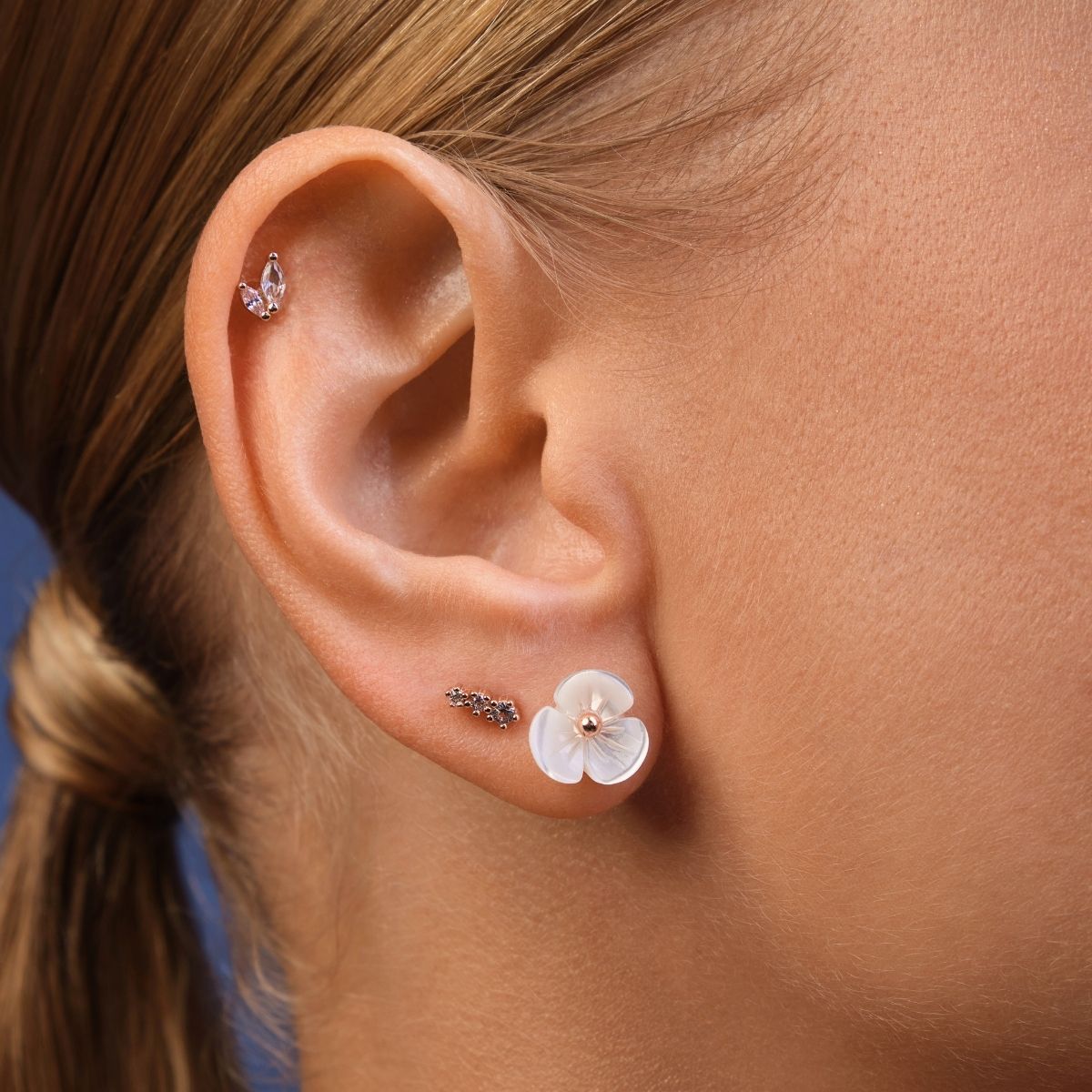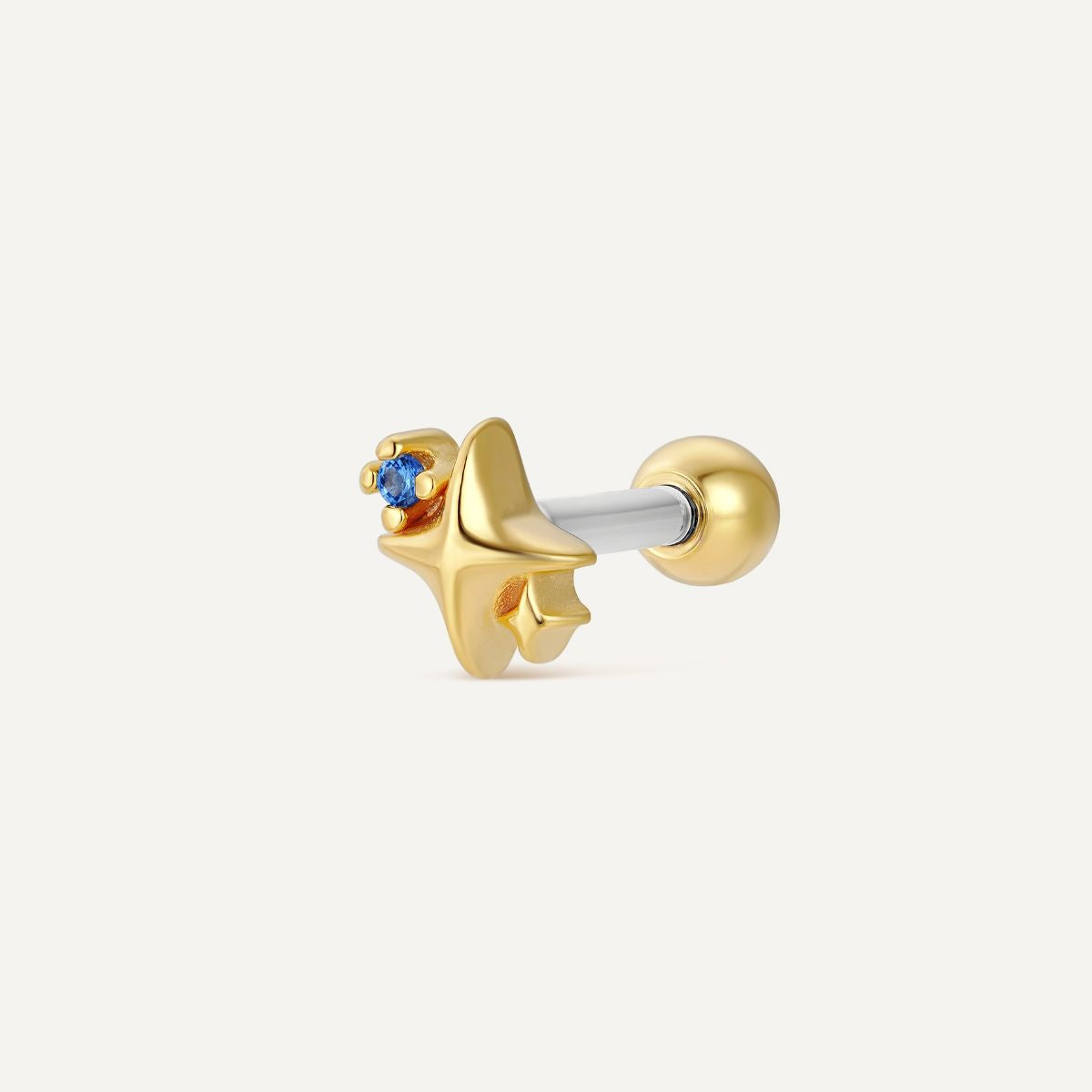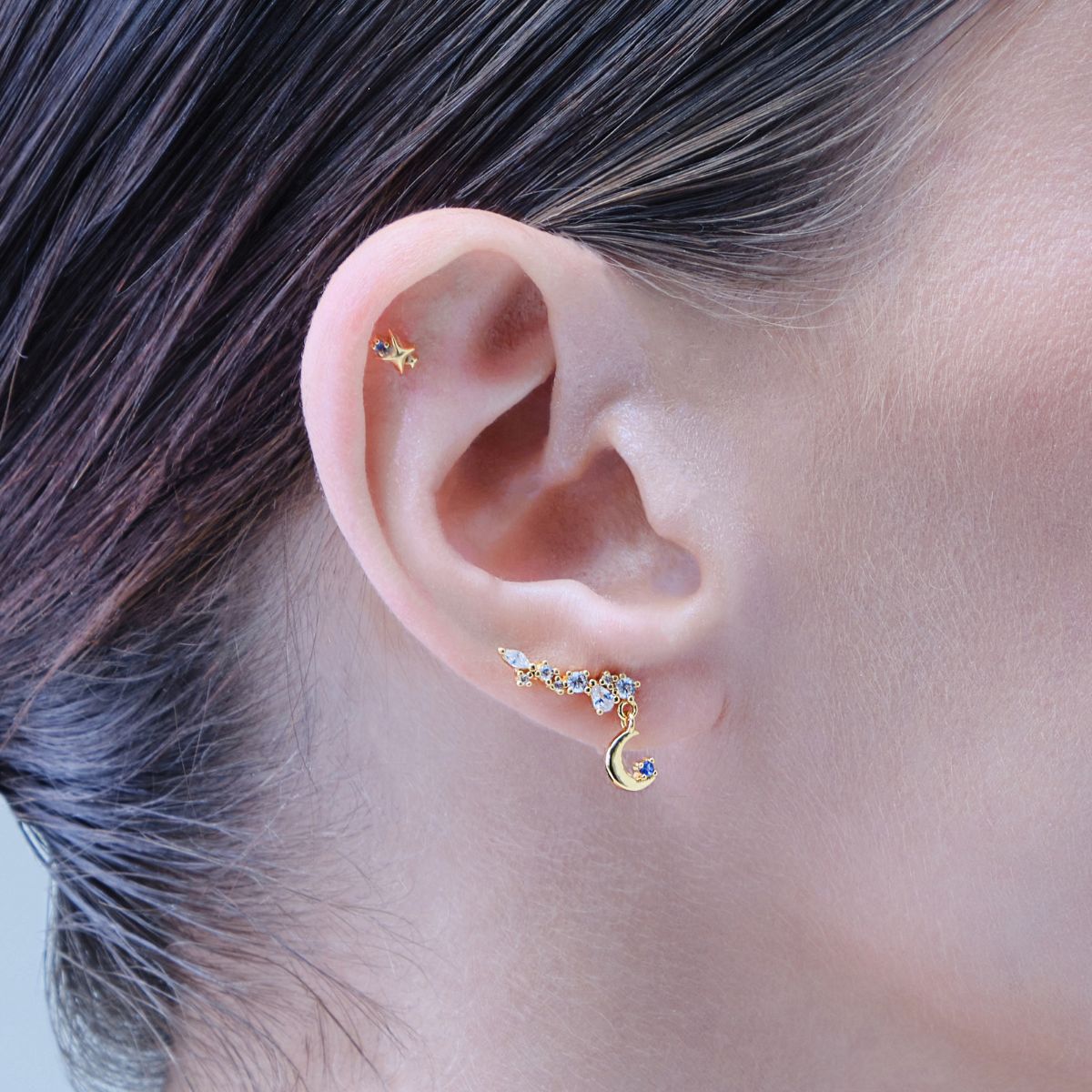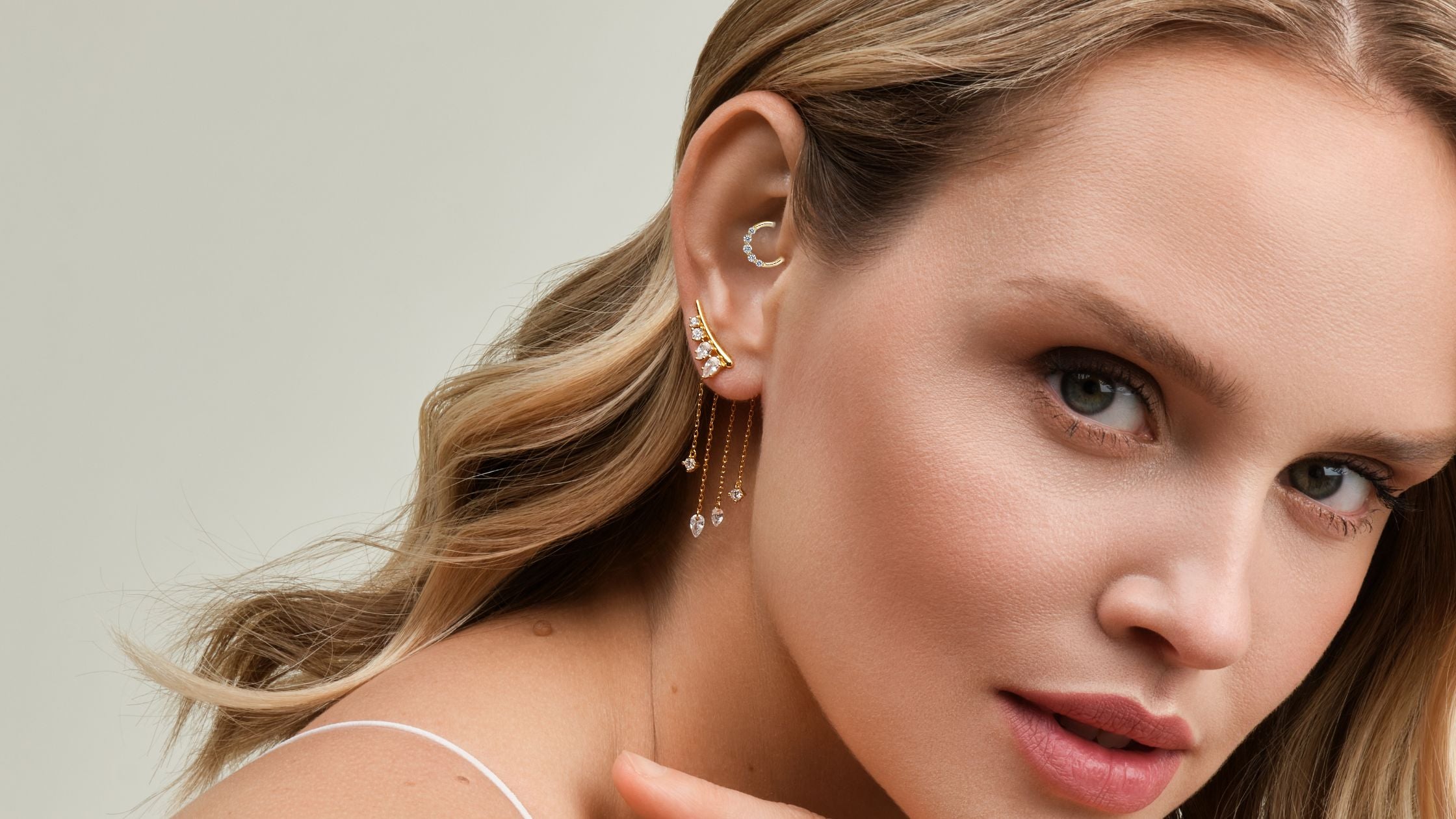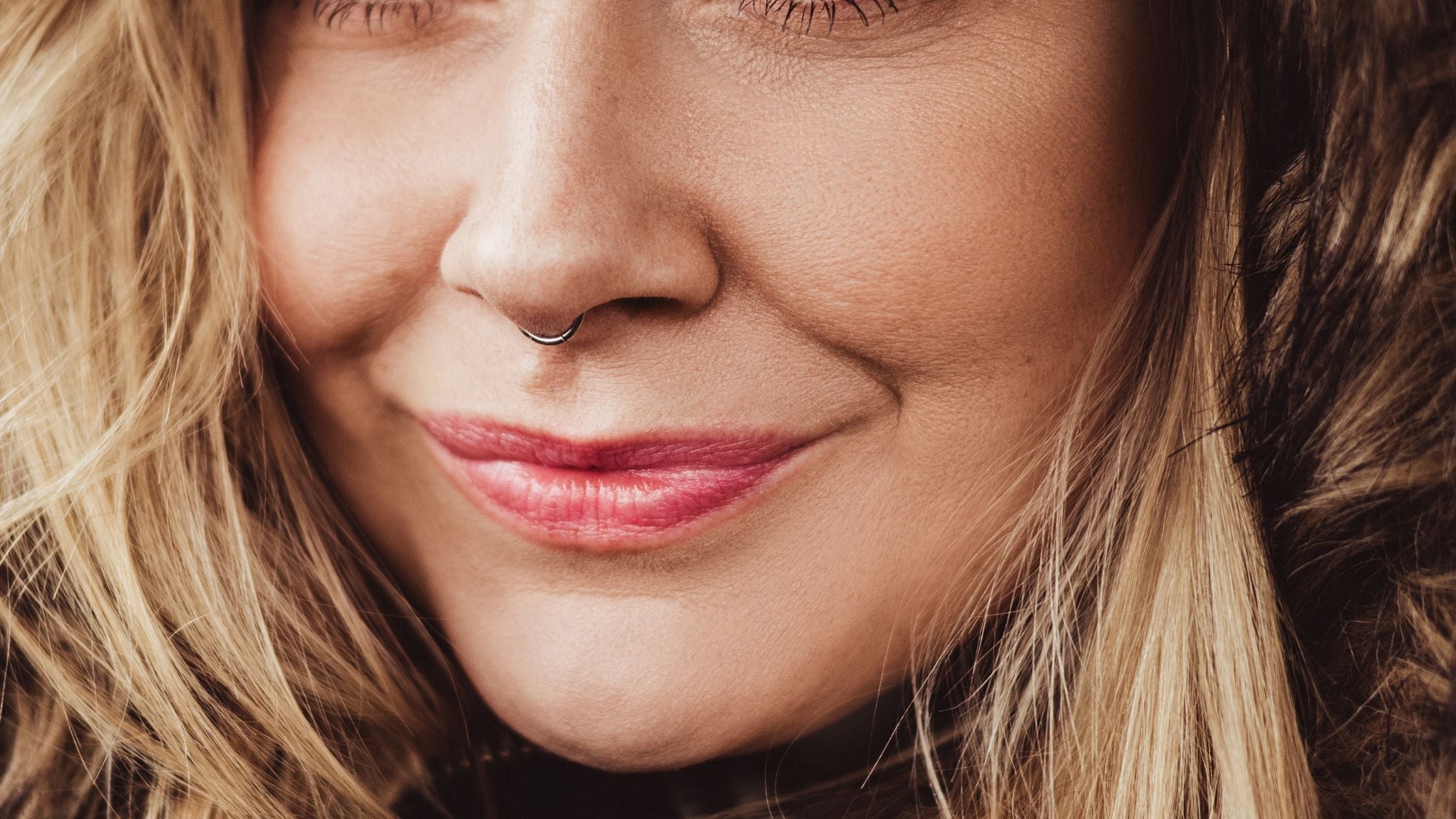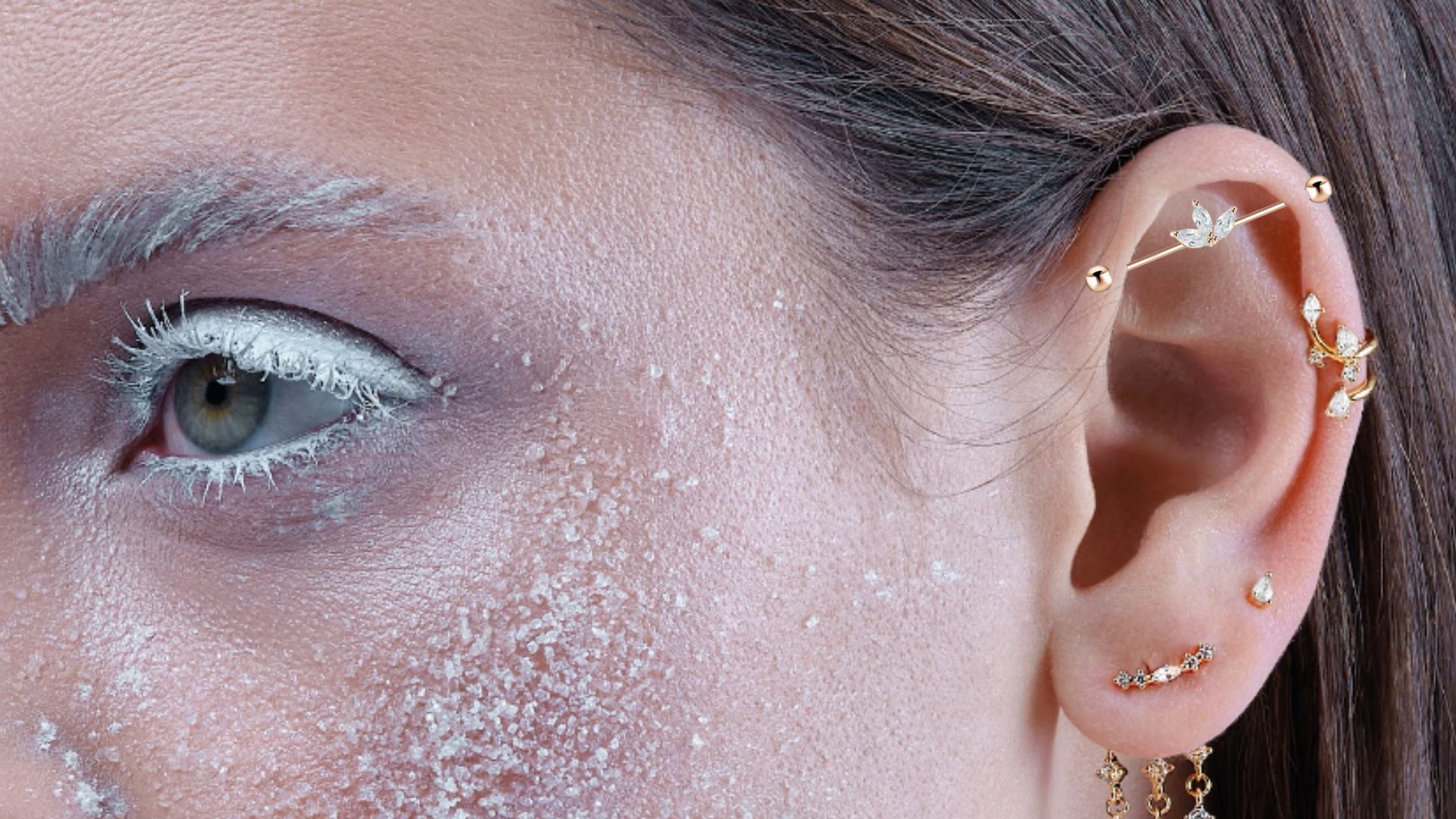Have you decided to pierce your helix?
After lobe piercings, the helix is often the choice for women who wish to pierce their cartilage. It's a classic to have.
We launched our first two piercings and we want to make many more. The cascade and the superposition of piercings and earrings are very trendy and at Les Joyaux d'Auré, we love it!
How's it going ?
We strongly advise you to go to a piercing salon rather than a jewelry store. The piercer will use a surgical needle and must meet strict hygiene rules, which is more careful than the gun used at the jeweller's. The gun used by jewelry stores promotes inflammation and can damage the cartilage because it is too violent.
The piercer will disinfect your ear with an antibacterial solution. Then he will mark the entry point of your piercing, it's up to you to confirm the exact location of your helix piercing. Once validated, the piercer pierces your ear. It's very fast ! More fear than harm ;)
The healing and care of a helix piercing
If you don't want to wait years for your piercing to fully heal, it's important to take care of it. We have some tips for you:
- Do not sleep on your freshly pierced ear.
We strongly advise you not to sleep on the recently pierced ear until it is completely healed. Moreover for your first piercing choose the ear on which you have the least tendency to fall asleep. Otherwise, use a travel pillow and put your ear in the middle.
- Wash your hands before handling your piercing.
Hands are, as you know, vectors of bacteria.
- Use physiological serum and sterile compresses (especially no alcohol), morning and evening.
Phys serum and sterile compresses are perfect for taking care of your new piercing. Dry your piercing well afterwards. Never leave it damp or wet.
Do not use alcohol to disinfect is not a solution. It often irritates, dries out the skin and can even slow down or even prevent healing.
- Avoid touching your ear.
Do not play with your piercing until your helix (or other) is completely healed. It is the first source of infection
- To disinfect your piercing, use an antiseptic (without alcohol) during the first 15 days and apply it to the wound using a cotton swab
- Avoid the beach and the swimming pool
Avoid these places for the duration of your healing. We advise you to pierce your ears rather in winter so that the temptation is not too great.
It's very easy to get an infection after going to the beach or pool, so stay away from those places for a while.
- Make another appointment with your piercer.
Before changing your first piercing we advise you to see your piercer again in order to have a professional opinion. He can also help you with the purchase of your new piercing - recommended materials - It is also sometimes difficult to put on your own piercing, so he will be of great help.
Helix healing takes an average of 3 to 6 months, sometimes longer. After applying these tips you should have no problems. If so, contact your piercer. Do not wait with pain, it would be a shame to have an infection.
How to get your ear puffy with piercing?
Your ear swelled up. You can apply physiological saline that you have previously put in the refrigerator. The goal: to make cold sterile compresses to apply to your ear. Cold helps reduce swelling
What are the contraindications for ear piercing?
- If you are pregnant or breastfeeding : The risk of infection or reaction is very high.
- If you suffer from hepatitis B or C : We also recommend that you be vaccinated before going to pierce yourself.
- You are ill : chronic illnesses, cancer, heart or genetic illnesses, diabetes, AIDS, blood or coagulation disease... Immune resources being weakened by the patient will have more difficulty healing, all the more so in the event of 'infection.
- If you have a current treatment based on corticosteroids or non-steroidal anti-inflammatory drugs such as Aspirin, Advil, Voltarene etc... We advise you to seek the advice of your doctor before having your piercing. Also inform the piercer of your health problem before any act.
- If you have had an operation in the last 2 months . It is important that the anesthetic is completely evacuated by the body. Likewise, if you plan to have surgery soon . You will have to remove all your jewelry and piercings, which is not without consequences. Because your hole is very likely to tighten. You must therefore wait for complete healing if you plan to be hospitalized.
- Recent or future hospitalizations
If you have recently undergone an operation, you must wait at least 2 months for the body to evacuate the anesthetic product.
And if you are planning a future procedure, you will have to remove all your jewelry. However, you should not remove your jewel during healing, the canal will tighten very quickly, reinsertion of the jewel will be difficult (even impossible), painful, and will damage the ongoing healing. So you have to reach a complete healing before considering hospitalization.
How much does a helix piercing cost?
Around 35€. This varies if you go to a jewelry store or a piercer. It is often cheaper in jewelry but it is not recommended.
What materials for a helix piercing?
316L surgical steel:
This is the material used at Les Joyaux d'Auré. It is also called 316L stainless steel. It is a material perfectly suited to piercings. It is often used first and afterwards with titanium because it is non-allergenic and therefore suitable for sensitive ears.
Titanium:
It is also a perfect material for a helix piercing whether in the first pose or after. It does not contain allergens like 316L surgical stainless steel.

